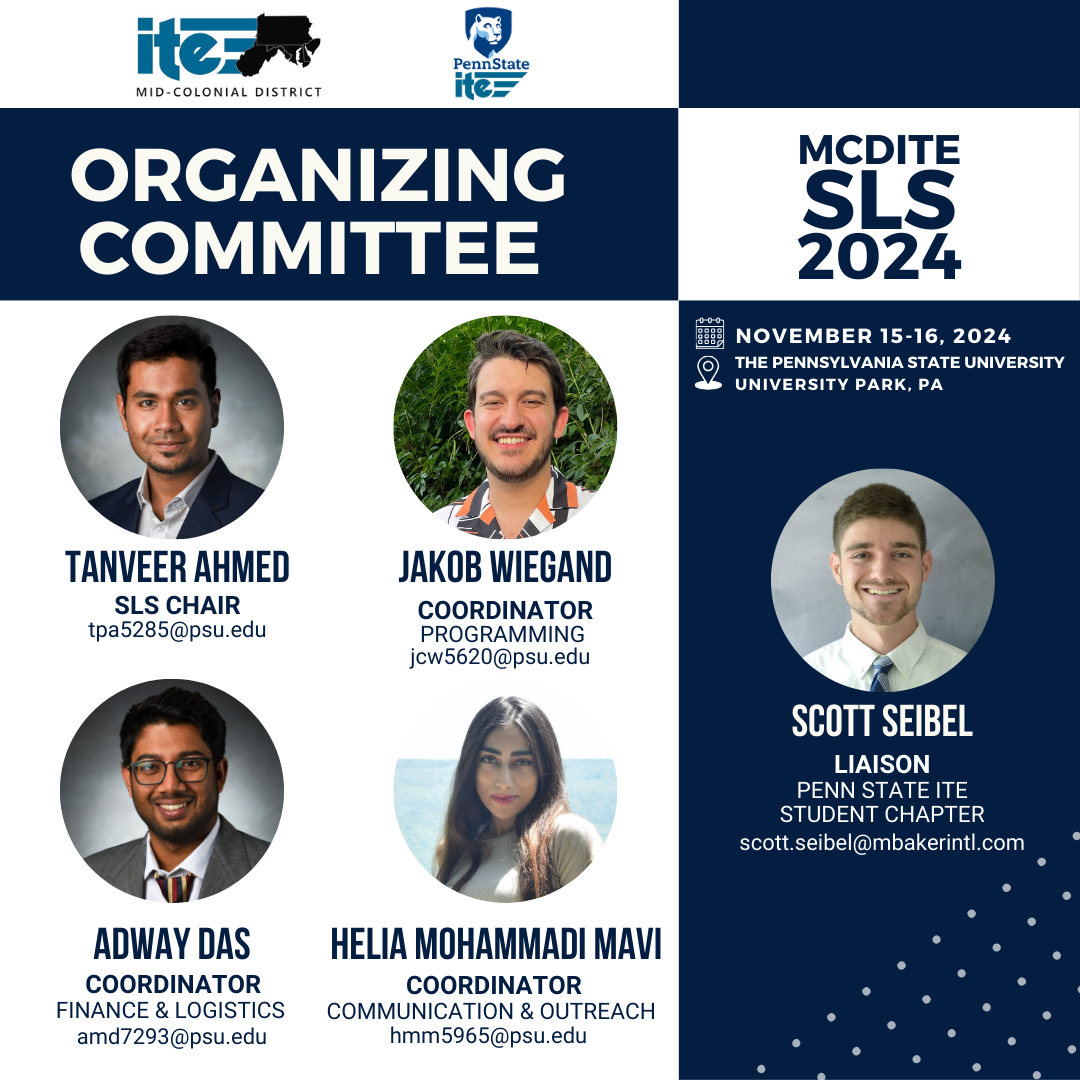Thank you for attending the 2024 MCDITE Student Leadership Summit!
Interested in hosting an SLS at your school? Reach out to Owen Hitchcock at ohitchcock@rkk.com!
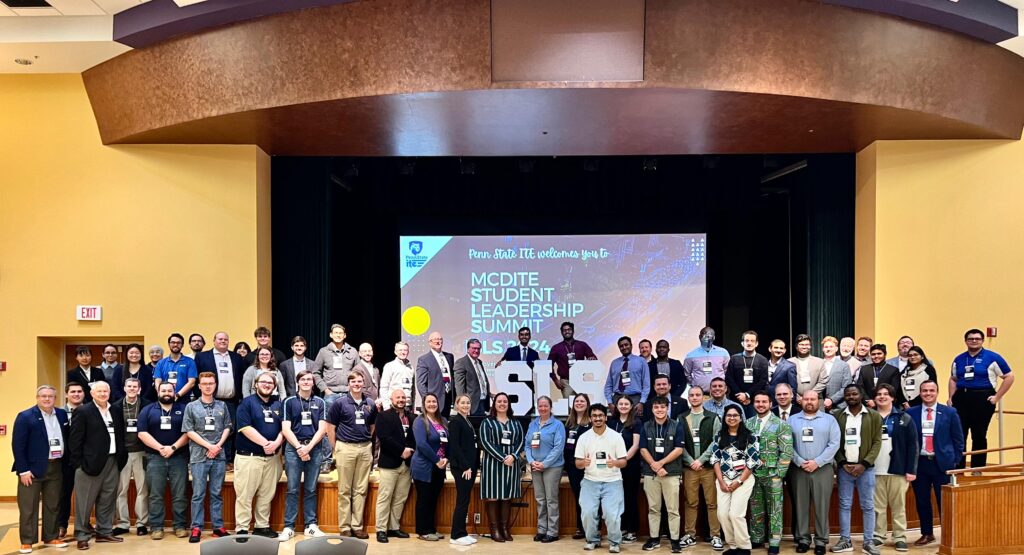
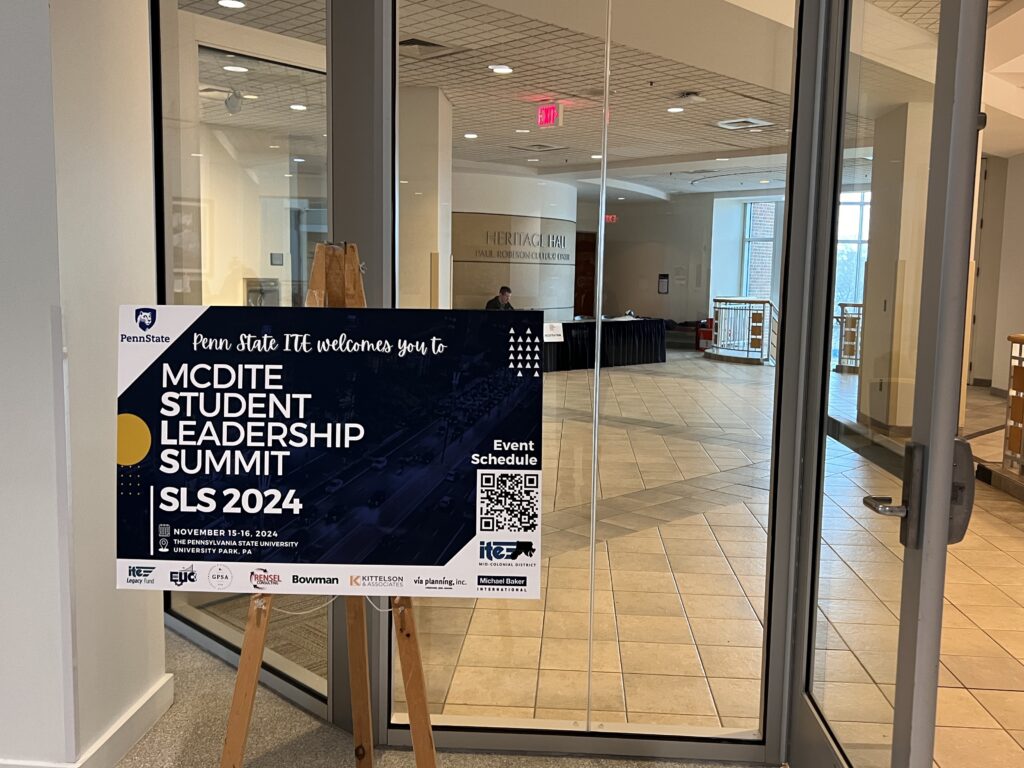
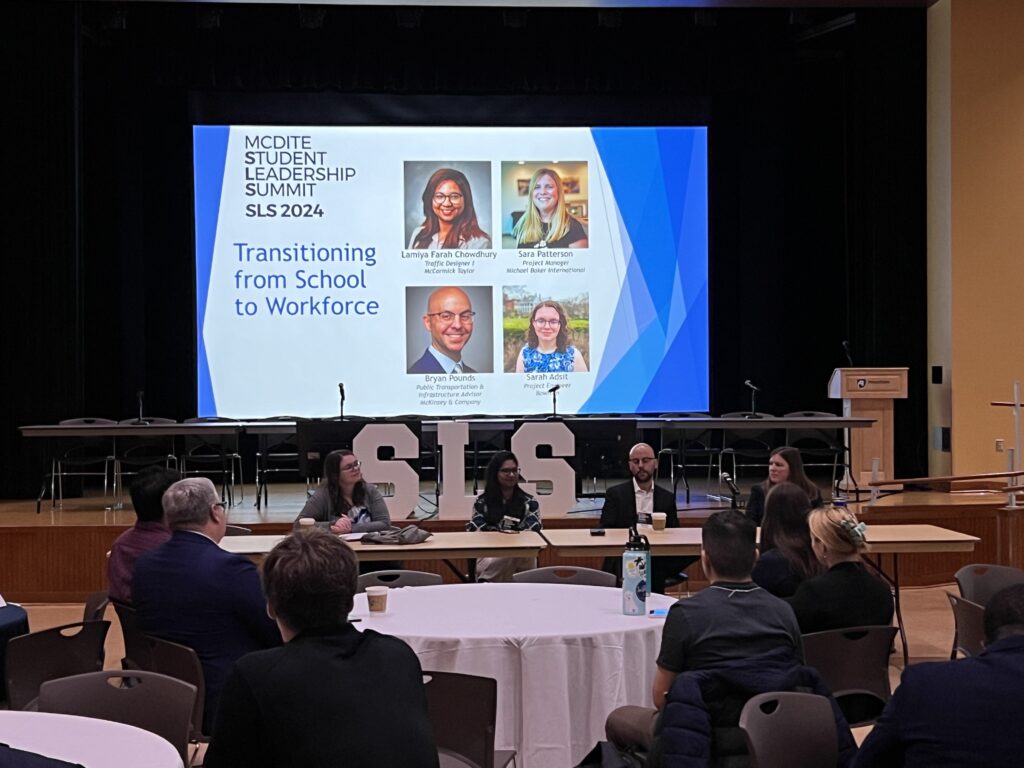
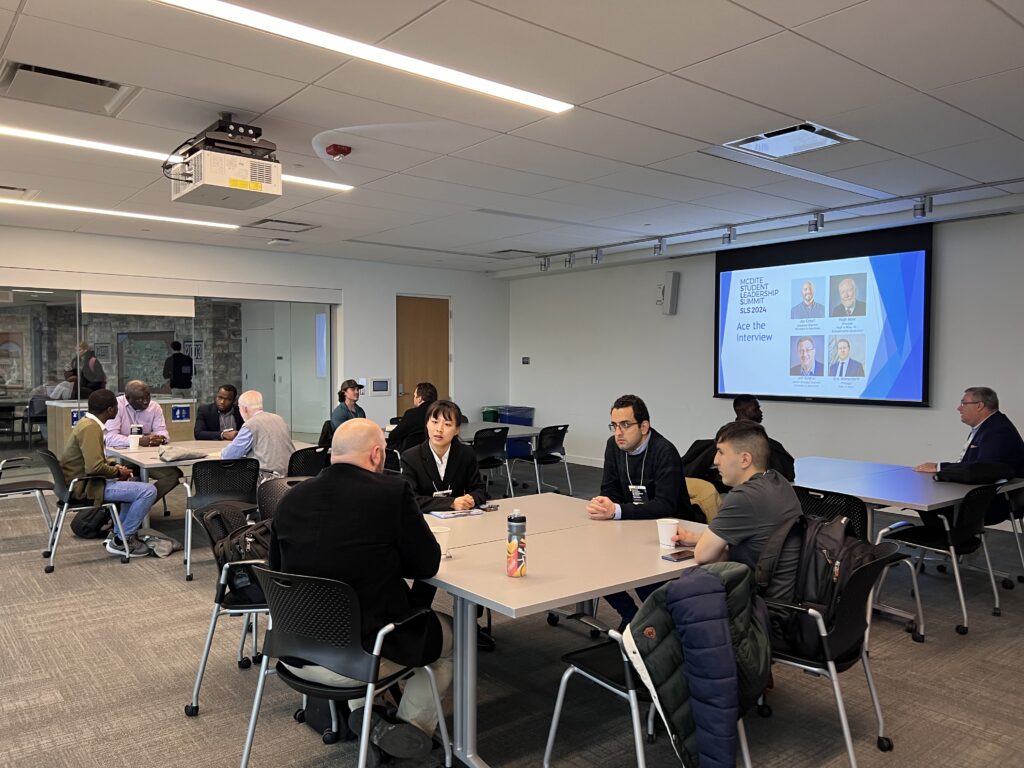
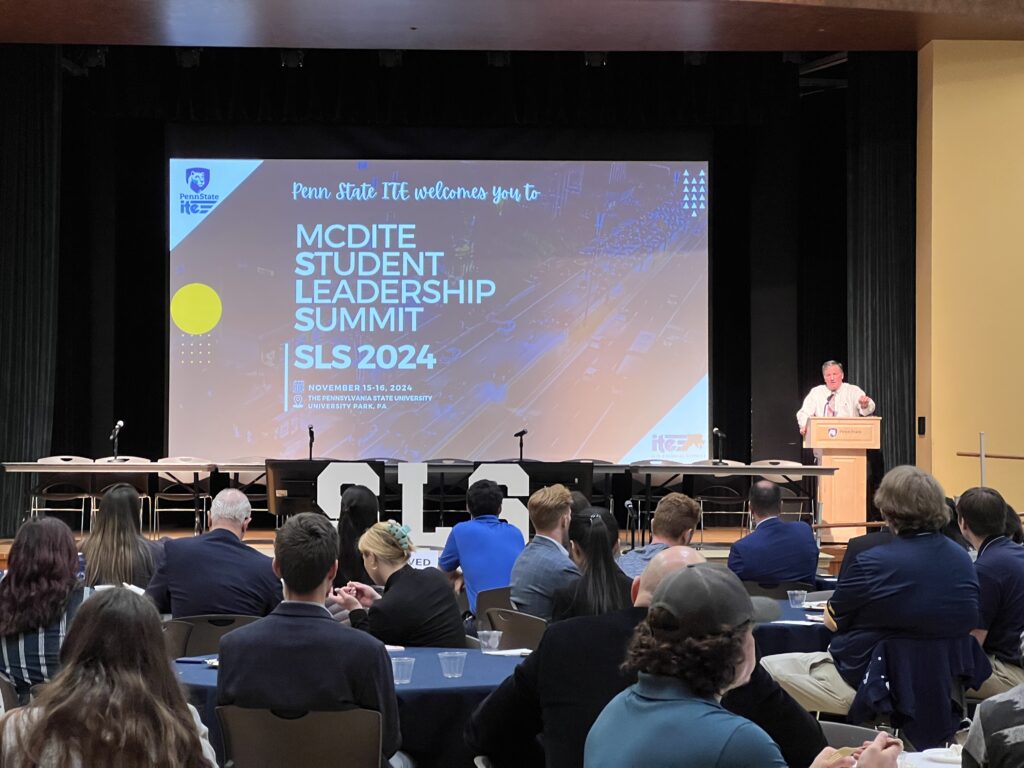
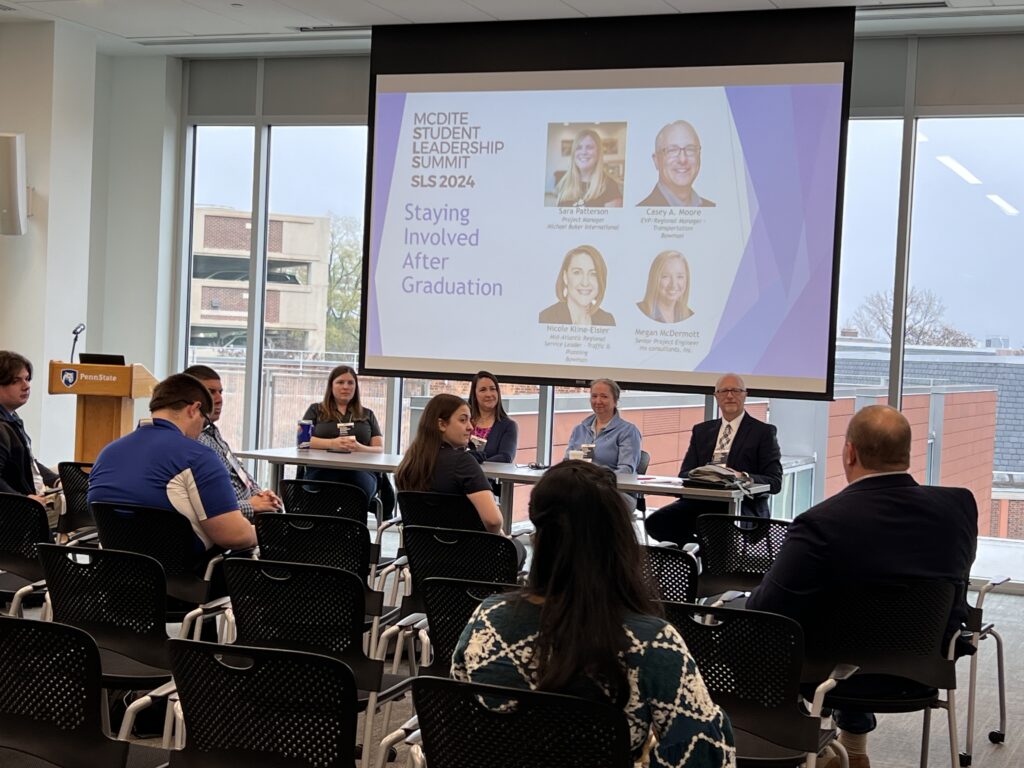
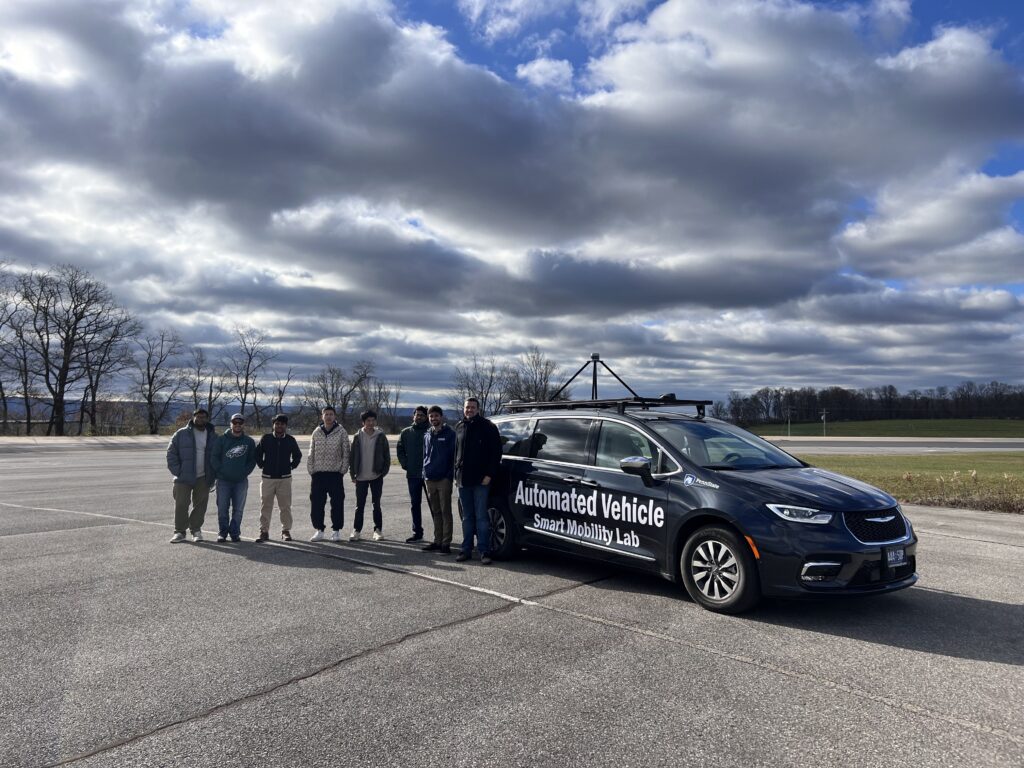
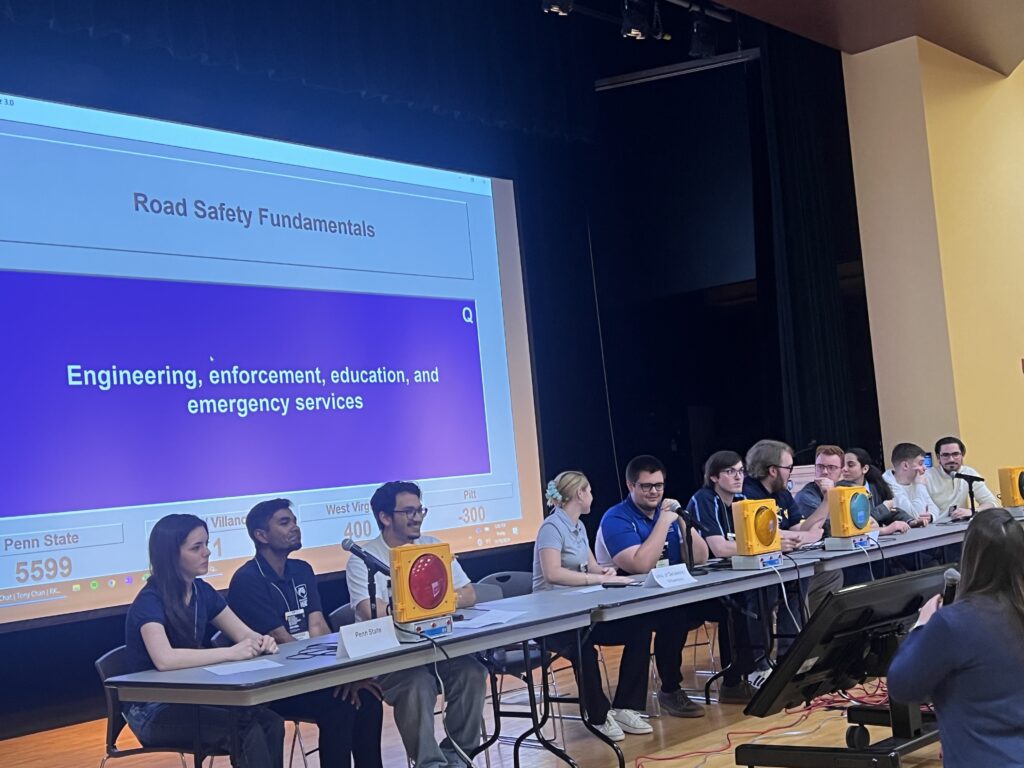
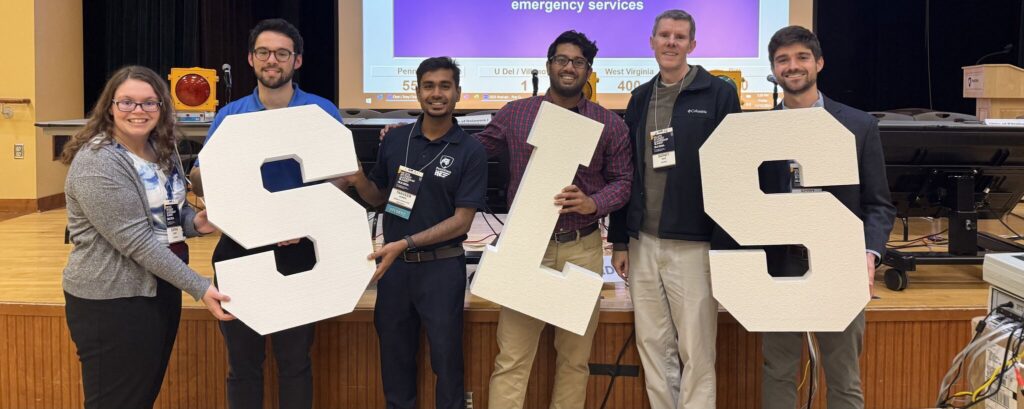
Hosted by Penn State ITE, the first Mid-Colonial District Student Leadership Summit (SLS) was held at The Pennsylvania State University, University Park, PA on November 15-16, 2024.
The summit was designed to foster leadership skills, promote professional development, and facilitate valuable career and networking opportunities for both students and professionals in the field of transportation engineering.
In addition to the technical and professional development sessions, the summit featured exciting student competitions, including a 3-minute thesis style event and the District Traffic Bowl. The Mid-Colonial District hosted the 2024-2025 District Traffic Bowl tournament at the SLS. Congratulations to the winner, Penn State University, who will advance to the 2025 International Grand Championship, to be held at the 2025 ITE International Annual Meeting in August 2025 in Orlando, FL.
What’s a Student Leadership Summit?
The Student Leadership Summit originated in the Western District in 2014 and have been hosted across the U.S., Canada, and in the ITE Australia and New Zealand Section. They are planned by students, for students. ITE’s professional members typically provide support through sponsorships and participation in the summit’s program. For more information, visit ITE International.
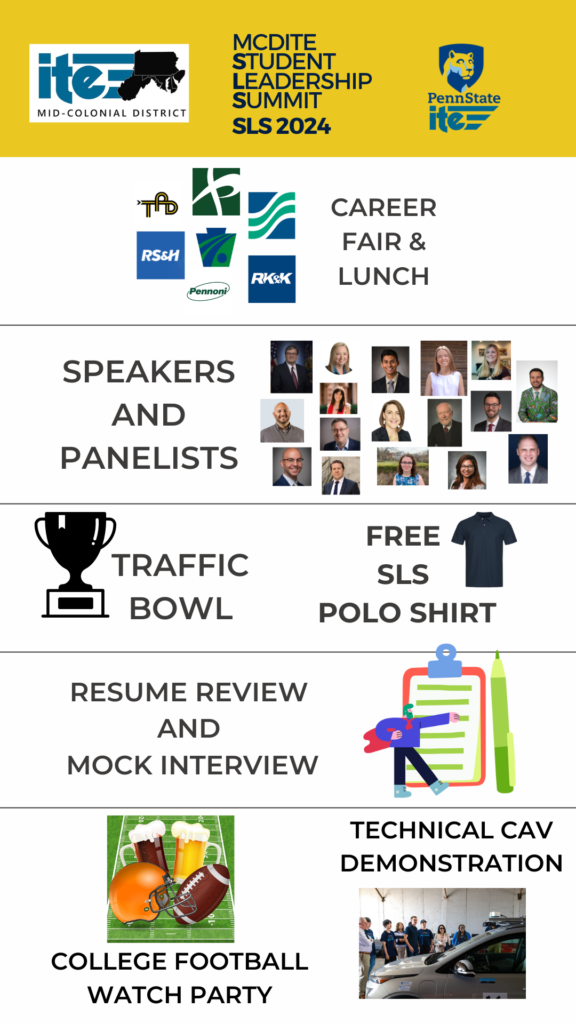
Schedule
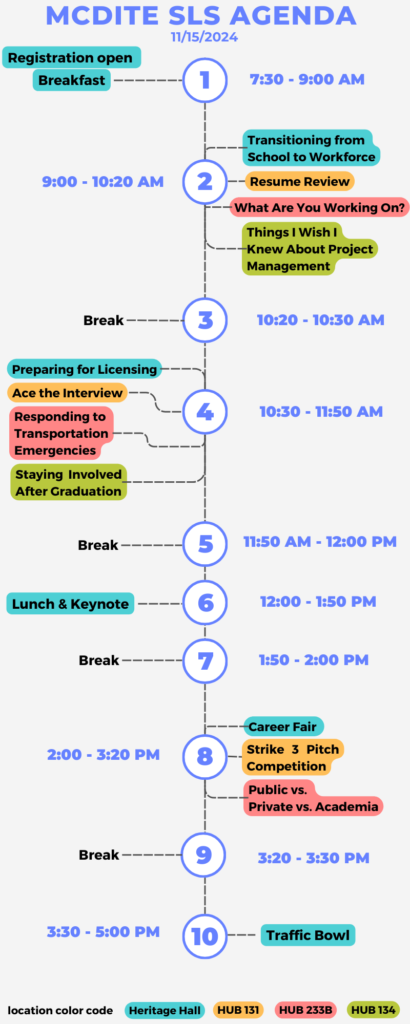

Technical Program
Morning Session #1
Transitioning from School to Workforce – Heritage Hall
Panel Discussion
As students approach the culmination of their academic journey, the transition from school to the workforce becomes a pivotal phase filled with excitement and challenges. This panel discussion brings together industry professionals and recent graduates to share insights and experiences on navigating this critical transition. The session aims to provide students and recent graduates with practical advice, strategies for success, and a realistic understanding of what to expect as they embark on their professional careers. This discussion is an invaluable opportunity for students and recent graduates to gain practical knowledge and prepare for the next steps in their careers.
About the PanelistsModerator
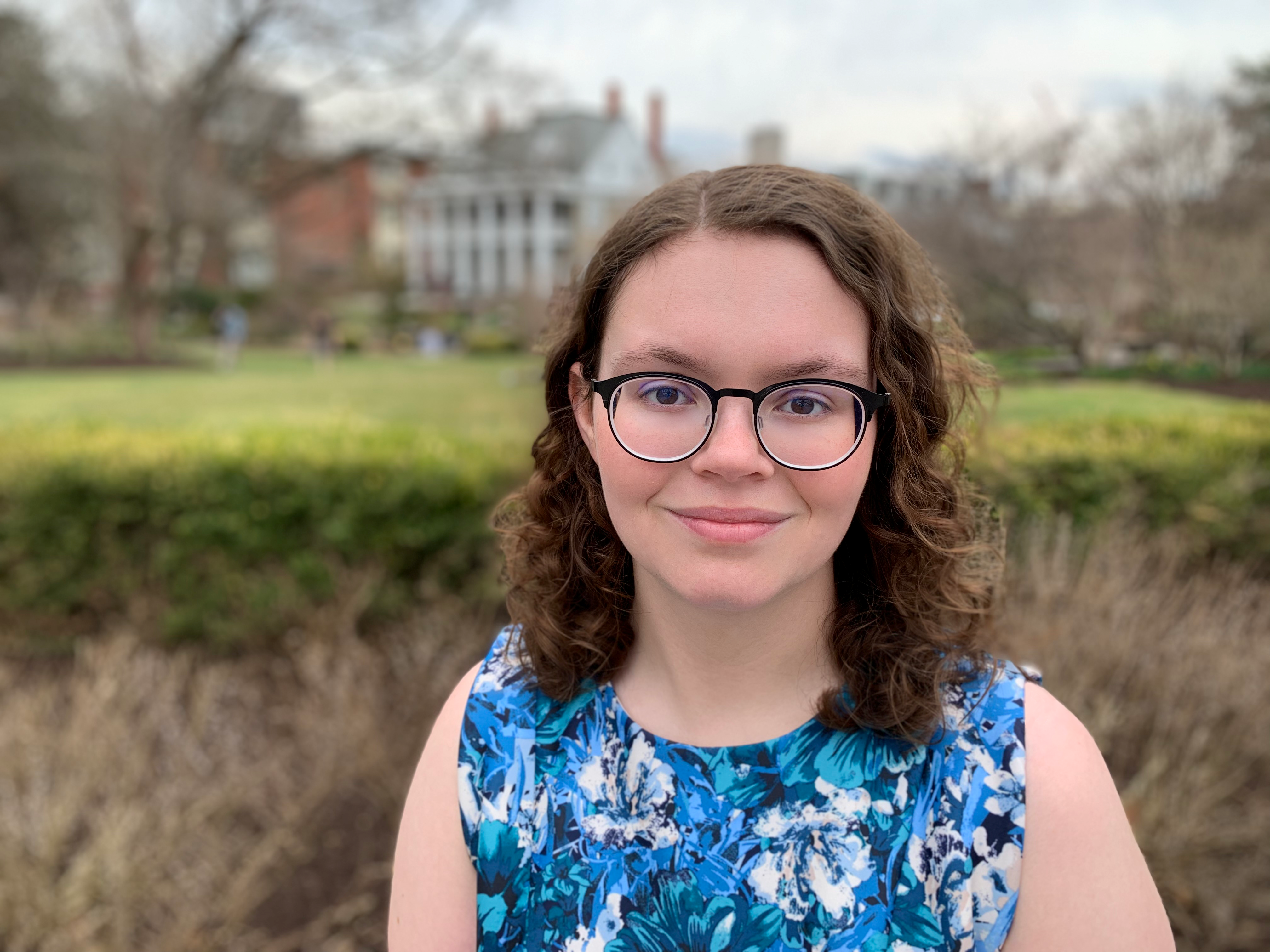
Sarah Adsit, P.E. is a Project Engineer with Bowman based out of Pittsburgh, PA. She holds a Master of Science in Civil Engineering from Purdue University (2021) and Bachelor’s of Science in Civil Engineering from Penn State (2019). At Bowman, she provides traffic engineering services for a range of public and private clients, focusing on preparation and review of traffic studies, GIS mapping, and transportation planning projects. She’s also passionate about ITE, has been involved since her days as a student at Penn State and continues to volunteer at the District and Section levels.
Panelists
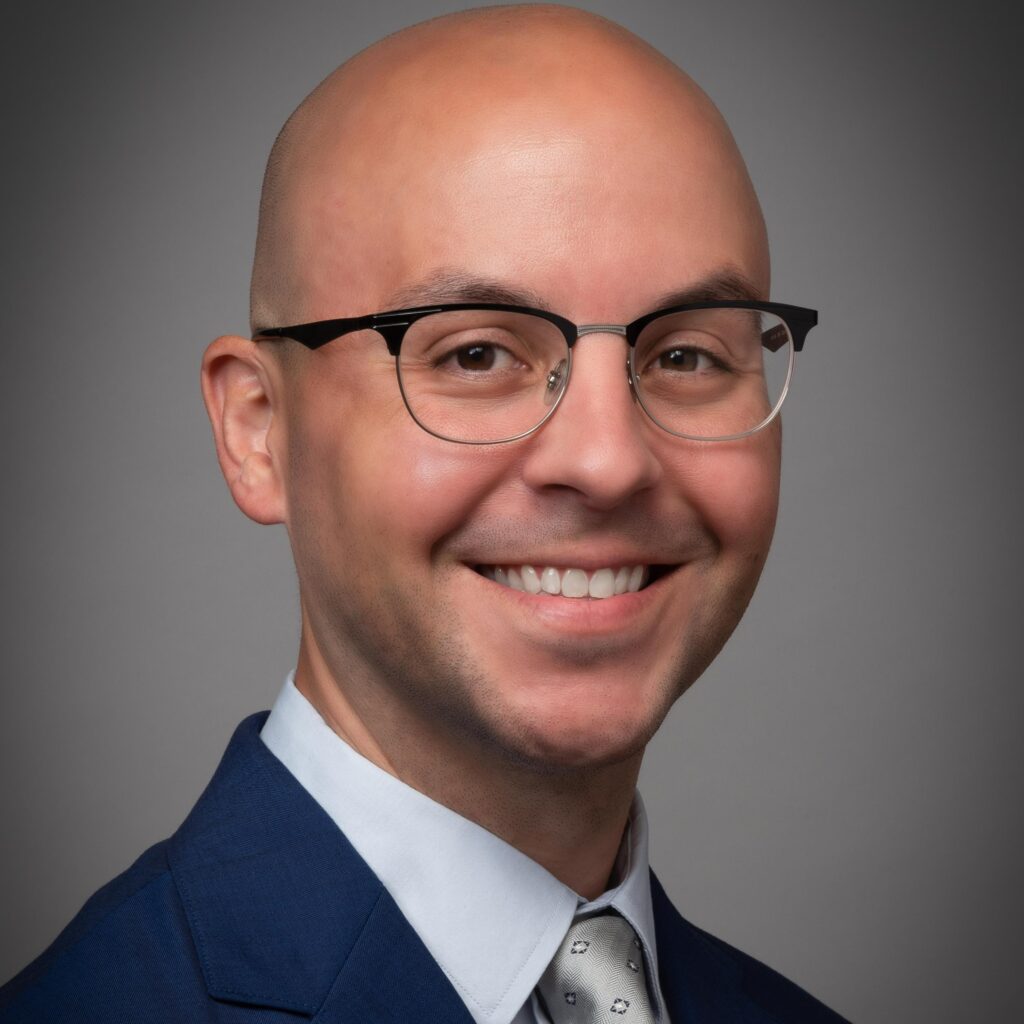
Bryan Pounds is a Public Transportation and Infrastructure Advisor at McKinsey & Company, based in Boston. In this role, Bryan serves public sector clients across the value chain, including agency wide vision setting and top team effectiveness, organizational planning, capital portfolio optimization and investment strategies, performance-based planning, and capital delivery excellence. In prior roles at SP&K Engineering and WSP, Bryan served state and local entities on multimodal planning, project development, capital investment strategies, and grants management. Bryan is an active member of the Transportation Research Board (TRB)’s Standing Committee on Strategic Management.
In the public sector, Bryan served the Commonwealth of Massachusetts Metropolitan Planning Organizations (MPOs) as Chair, and administered MassDOT’s $8 billion federal aid program for eight years in the Office of Transportation Planning in Boston. In this role, he received the Governor’s Citation for Outstanding Performance in 2019 for the facilitation of key funding considerations on major projects in Capital Investment Plan (CIP). He was nominated for the American Association of State Transportation Officials (AASHTO) Vanguard Award in 2020 for leading development of a capital investment planning tool for use by DOT program managers and MPO planning staff which has since been adopted by several DOTs throughout the US.
Bryan holds a B.S. in Civil Engineering from Penn State University, and an M.P.A from the University of Massachusetts.
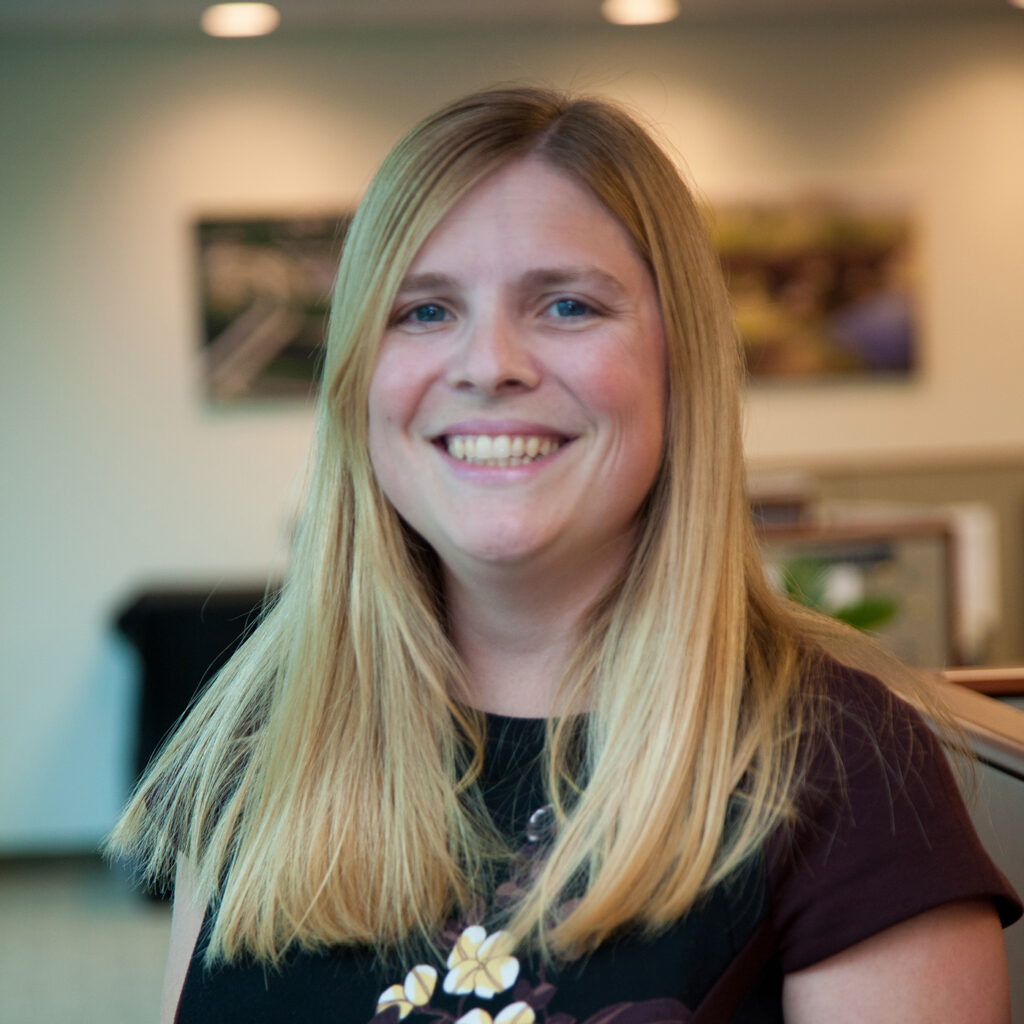
Sara Patterson, PhD, PE is a project manager at Michael Baker International and has degrees in architecture and civil engineering with research in multi-modal travel demand modeling. At Michael Baker, she has designed trails and managed I-95 design support contracts for PennDOT. She’s the chair of the LeadershipITE committee and a member of MASITE since 2011.
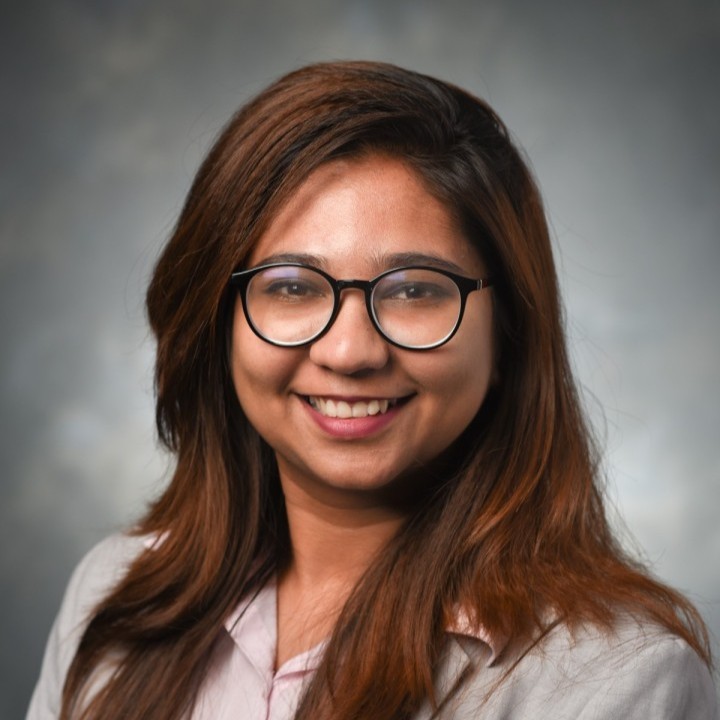
Lamiya Chowdhury, EIT completed her master’s degree in Civil Engineering from Penn State in 2023. Following her graduation, she began her professional career as a Traffic Designer at McCormick Taylor. During her time at Penn State, Lamiya was actively involved in the Institute of Transportation Engineers (ITE) student chapter, serving as the treasurer for the Penn State chapter. She also participated in the MCDITE District Traffic Bowl twice. Lamiya continues to stay engaged with ITE, volunteering at various events after graduation.
Key Discussion Topics:
- Understanding the Transition:
- Exploring the significant differences between academic life and professional work environments. Addressing the common challenges faced during the transition period.
- Preparation and Adaptation:
- Identifying the skills and knowledge that are most valuable in the workforce. Sharing experiences of what panelists wish they had known before entering the job market.
- Leveraging Academic Experiences:
- Highlighting the aspects of academic training that proved most beneficial in professional settings. Discussing how internships, projects, and extracurricular activities contribute to career readiness.
Potential Questions
- What are the biggest differences between being a student and being a professional in transportation?
- How did you adjust to these changes?
- What are some things you wish you had known before the transition from school to workforce?
- Are there any specific challenges you encountered that you didn’t expect?
- What experiences or aspects of your education prepared you best for your job?
- Were there any courses, projects, or internships that were especially beneficial?
- Can you share an example of a skill you learned in school that you use regularly in your job?
- How did your academic background directly contribute to your current role?
- What advice would you give to students who are about to enter the workforce?
- Are there any specific steps they should take to prepare themselves?
Resume Review – HUB 131
Interactive Session
Crafting a compelling resume is crucial for students preparing to enter the workforce, as it serves as the first impression for potential employers. This interactive session, “Resume Review,” offers students a unique opportunity to learn what reviewers are looking for in a resume and receive personalized feedback to refine their own. The session will include a brief presentation on resume best practices, followed by hands-on review sessions where students can get direct feedback and make improvements on the spot. This session is an invaluable opportunity for students to enhance their resumes, increase their chances of securing job interviews, and ultimately advance their careers.
About the Reviewers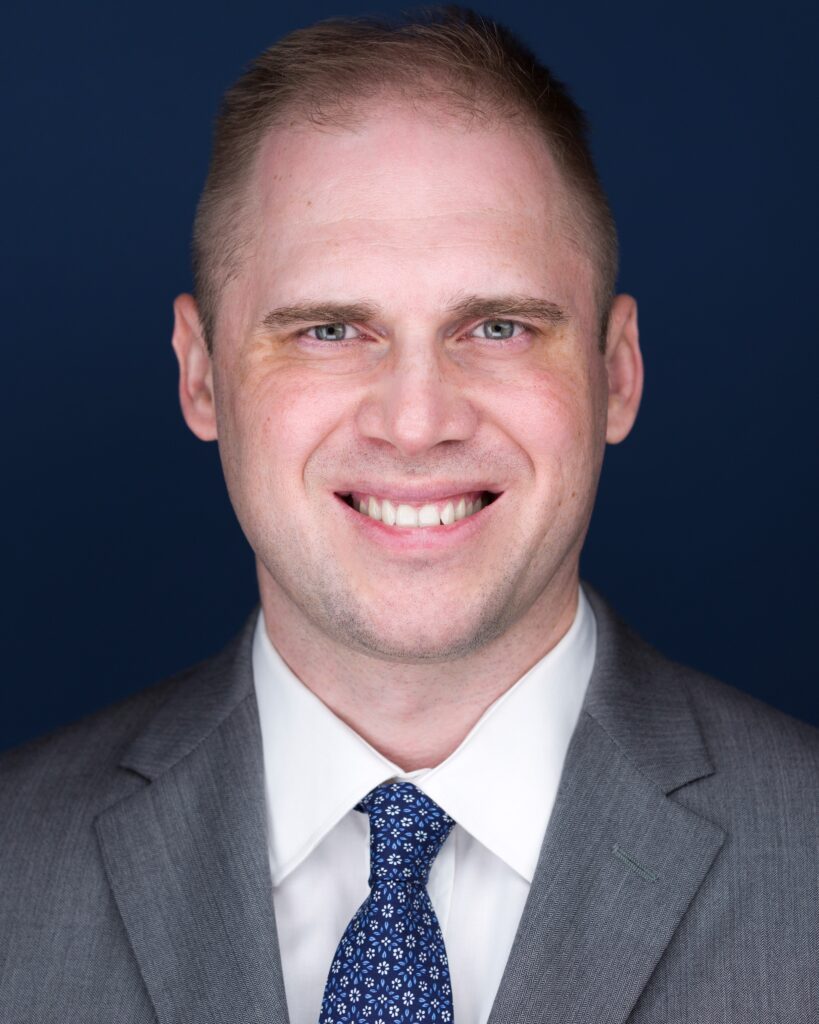
David Adams, PE is the Senior Manager for Traffic Operations in PennDOT District 6-0 which covers the Philadelphia region. Dave attended the Pennsylvania State University and graduated in 2003 with a Bachelor of Science degree in Civil Engineering. He also obtained a Master of Civil Engineering degree at the University of Delaware. His responsibilities include the Arterials Section, Freeway Section, Paint Crews, and the Southeastern Regional Traffic Management Center. He has been a licensed Professional Engineer since 2009 and has 20 years of service to the Commonwealth.
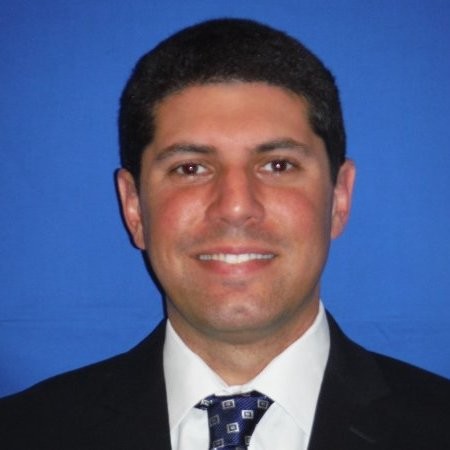
Steve Gault, PE, PTOE carries out the Pennsylvania Department of Transportation’s goal of moving humans and their stuff safely and efficiently from Point A to Point B as Chief of the TSMO Arterials and Planning Section. In this role, he oversees PennDOT’s Transportation Systems Management & Operations (TSMO) Program. Steve is a civil engineering graduate of Rensselaer Polytechnic Institute, a registered Professional Engineer, and a certified Professional Traffic Operations Engineer. Steve currently serves as the Secretary for the Mid-Atlantic Section of ITE.
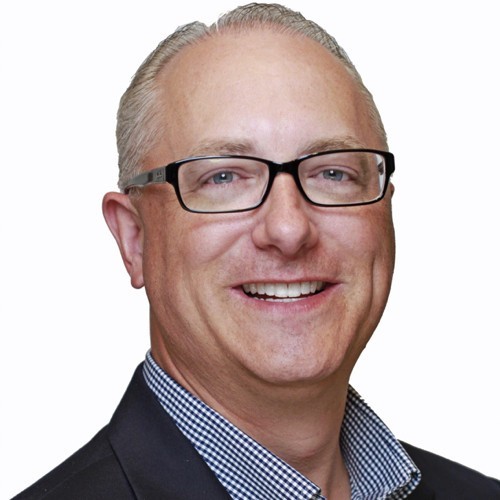
Casey A. Moore, PE is an EVP/Regional Manager – Transportation at Bowman Consulting Group, Ltd. He has executive management responsibilities within the firm and for his business unit, helps to drive the services in transportation for Bowman across the larger firm footprint and continues to serve some clients and lead projects. In July 2023, Casey took an assignment with the Bowman Corporate team to provide Operations leadership over the national recruiting team. He was with McMahon for 31 years prior to McMahon joining Bowman in May 2022, ultimately serving as one of five of the firm’s Board of Directors and Executive Vice President of Corporate Operations with responsibilities firm-wide for all Corporate and support functions.
His early work experience included geotechnical engineering and construction services with PSI, Inc., but in his 31 years at McMahon and 2+ years now with Bowman, his service focus has been in transportation engineering, transportation planning, highway design, and signal design. Casey manages transportation engineering projects for a variety of public and private clients, including as Township Traffic Engineer for several Pennsylvania municipalities and as manager of several statewide PennDOT contracts. He additionally assists in business development for the firm and served for seven years as the McMahon Corporate Business Development Director. Casey has appeared before numerous municipal boards and commissions, as well as in County court to provide expert witness testimony/presentations.
In addition to his work responsibilities, Mr. Moore is involved and active in several professional affiliations, including the Penn State Engineering Alumni Society (PSEAS) – current Immediate Past President through 2025, Penn State Alumni Council – current executive board member and Chairperson of Membership & Marketing Committee, American Council of Engineering Companies (ACEC/PA) – current Secretary of the Executive Committee (officers) of the Board of Directors, Past President of Mid-Colonial District of ITE (2007), and Past President of the Mid-Atlantic Section of ITE (2004).
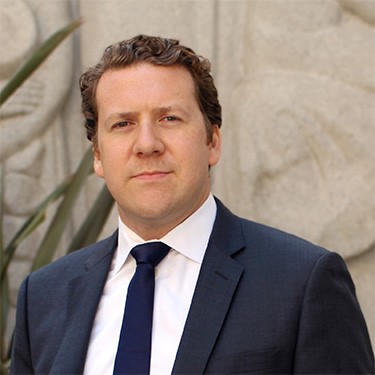
Eric Womeldorff, PE is a seasoned transportation planner and consultant with 20 years of professional experience. Having led numerous transportation and land use projects across the San Francisco Bay Area and beyond, he brings an exceptional depth of expertise to his current role in Washington, D.C., where he oversees Fehr & Peers’ office. Eric has worked with a diverse set of public, private, and institutional clients, helping them navigate complex transportation challenges and make strategic decisions.
His work spans a wide variety of projects, including transportation planning for mixed-use developments, life science campuses, and major arenas like those in San Francisco and San Jose. As a consultant for UCSF and the San Francisco Municipal Transportation Agency, Eric has guided high-profile transportation and land use strategies. He has also partnered with companies like Uber and Lyft to address evolving transportation demands.
In addition to his consulting work, Eric leads Fehr & Peers’ Transportation Economics practice, where he has developed thought leadership and resources that help planners and engineers create more effective and innovative transportation solutions. He continues to influence the field by playing a key role in the development of a new city in California, focusing on sustainable transportation modes and forward-thinking parking strategies.
Key Session Features:
- Presentation on Resume Best Practices:
- An informative presentation covering what employers and recruiters look for in a resume.
- Tips on how to effectively highlight skills, experience, and accomplishments.
- Common pitfalls to avoid and strategies to make a resume stand out.
- Initial Resume Review:
- Students will bring their current resumes for an initial review.
- Professional reviewers will provide personalized feedback and suggestions for improvement.
- Revision Time:
- Students will have time to revise their resumes based on the feedback received.
- Assistance from reviewers and peers will be available during this revision period.
- Second Review Session:
- After revisions, students will have the opportunity to have their updated resumes reviewed again.
- Additional feedback will be provided to further polish and perfect their resumes.
What are You Working On? Showcasing Innovations in Transportation Engineering – HUB 233B
Classroom Session
The field of transportation engineering is constantly evolving, with professionals working on a diverse array of exciting and impactful projects. This classroom session, “What Are You Working On?”, offers a unique opportunity to gain insights into the latest developments and innovations in the transportation engineering industry. Featuring presentations from passionate professionals, this session will highlight the cutting-edge projects they are currently engaged in and the challenges and opportunities they encounter.
Ongoing Planning Projects at Penn State – Robert Watts, PE, PTOE, AICP, McCormick Taylor
Erie’s Bayfront: Finalizing the Plan – Megan McDermott, PE, ms consultants
Transportation Facilities Right-of-Way Mapping – Prince Goerge’s County, MD Master Plan of Transportation – Celia Escobar, Fehr & Peers
About the Speakers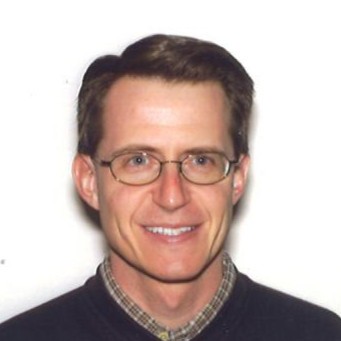
Robert Watts, PE, PTOE, AICP has over 25 years of engineering and planning experience in traffic engineering, travel demand modeling, transportation studies, and project development & programming. He is currently a Sr. Project Manager with McCormick Taylor in State College, PA. Mr. Watts holds Bachelor and Master of Engineering degrees in Civil Engineering from Penn State University and is a registered Professional Engineer in Pennsylvania, New Jersey, and Virginia.
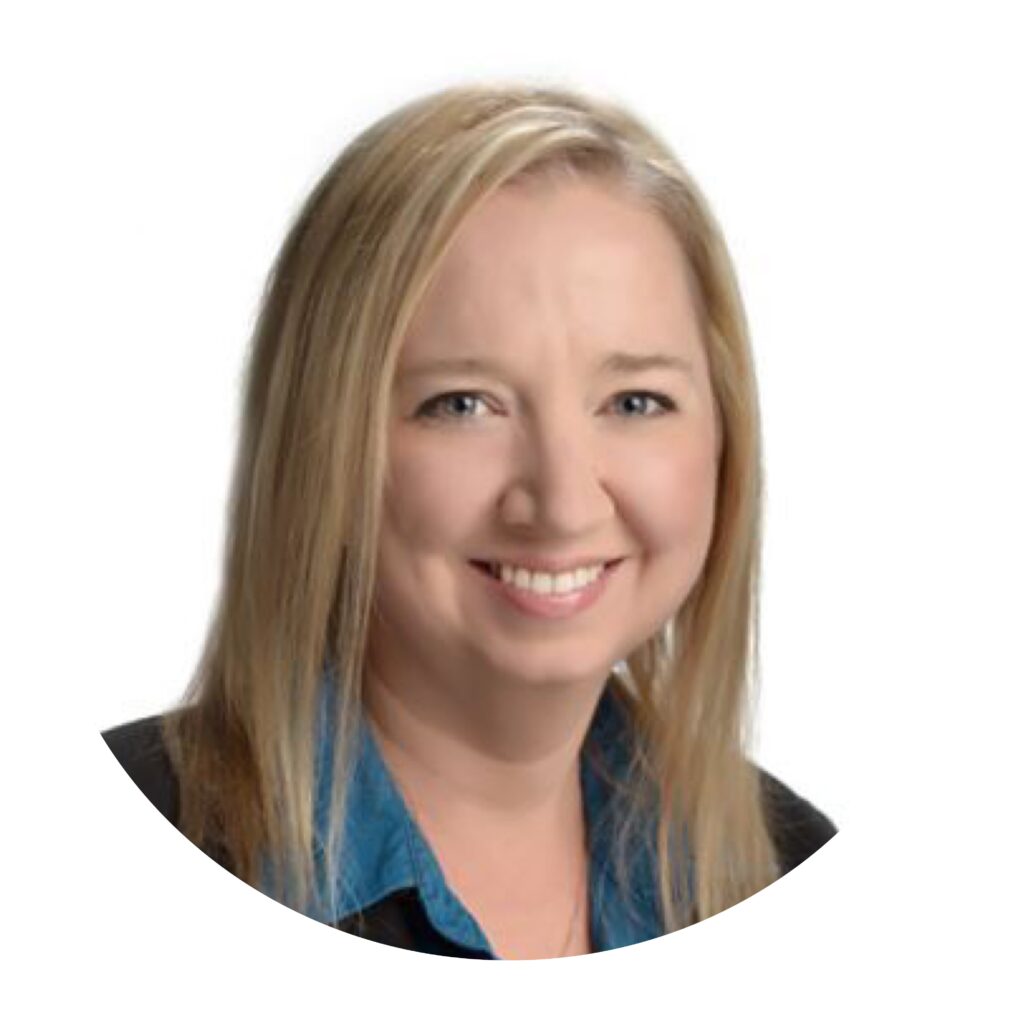
Megan McDermott, PE is a Senior Project Engineer at ms consultants in Pittsburgh, PA and graduated Pennsylvania State University in 2001. Megan’s expertise includes traffic engineering, traffic studies and highway design. She is the Technical Lead for traffic, highway and utility tasks on projects and she mentors younger engineers within the company. Megan is the 2024 President of the Mid-Atlantic Section of the Institute of Transportation Engineers covering the local region of Pennsylvania, West Virginia, Delaware and portion of New Jersey.
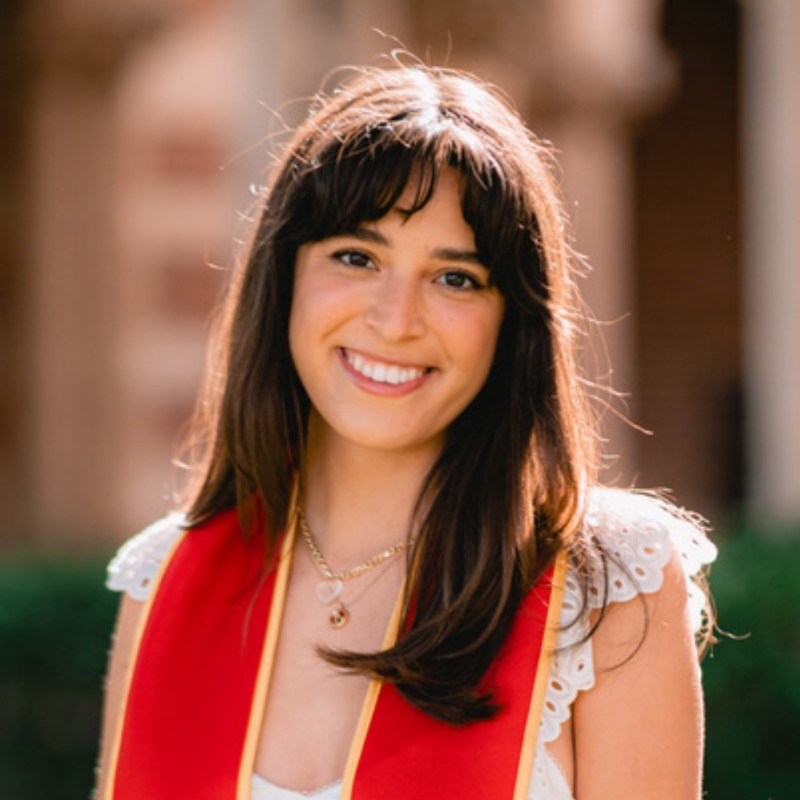
Celia Escobar recently joined the Fehr & Peers team at their Washington, DC office as a Transportation Planner. She earned her bachelor’s and master’s degrees in Urban Planning from the University of Southern California. She is passionate about safety work and Vision Zero projects, complete streets approaches, and transit service planning. She previously worked for a local transportation department in California, contributing towards tactical mobility projects and bus service planning. Her technical skillset include data visualization, ArcGIS, Cube, Synchro, in addition to writing, and effective communication.
Key Session Features:
- Case Studies of Major Infrastructure Collapses:
- Detailed presentations on the I-95 collapse in Philadelphia and the Key Bridge collapse in Baltimore.
- Examination of the immediate impacts, response strategies, and long-term recovery efforts for each incident.
- Emergency Response Strategies:
- Discussion of the key components of effective emergency response plans for transportation infrastructure.
- Exploration of coordination efforts between various agencies, including local, state, and federal authorities.
- Challenges and Solutions:
- Analysis of the logistical, technical, and communication challenges encountered during the emergency response.
- Insights into the innovative solutions and approaches used to overcome these challenges.
- Lessons Learned:
- Sharing lessons learned from past responses to infrastructure emergencies.
- Identification of practices for future emergency preparedness and response planning.
Things I Wish I Knew About Project Management – HUB 134
Panel Discussion
Project management in engineering involves a unique set of challenges and responsibilities that go beyond technical expertise. This panel discussion brings together seasoned project managers to share their insights and experiences, shedding light on the often unseen aspects of engineering project management. The session aims to provide aspiring project managers and engineers with a deeper understanding of the realities of managing projects, from unexpected responsibilities to the balance between technical work and management duties.
About the PanelistsModerator

Tyler Hartman, PE, PTOE, RSP1 is a Project Engineer II at RK&K with 8 years of experience in traffic engineering. He holds a bachelor’s degree in civil engineering from Widener University and is licensed in Delaware, Pennsylvania, Texas, Ohio, Maine, and Nevada. Tyler specializes in traffic signal design, ITS/ITMS, signing and striping, and maintenance of traffic (MOT) plans. He has led and managed numerous complex projects across Delaware, Texas, Ohio, and Pennsylvania. Active in ITE, Tyler serves as a committee chair at multiple levels and as the Awards Chair for the Central Pennsylvania Engineers Week Council.
Panelists
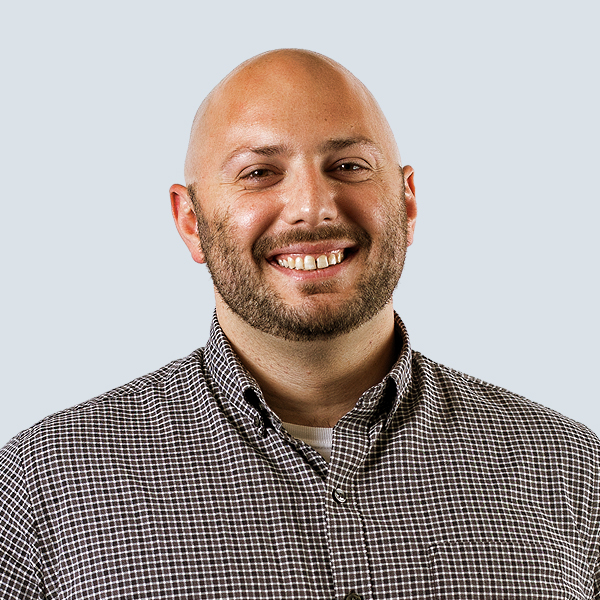
Jon Crisafi, PE, PTOE has expertise in traffic operations analysis, signal and roundabout operations and design, long-range planning, bicycle and pedestrian operations, and microsimulation. His areas of expertise are in signal design, including transit signal priority (TSP) and automated traffic signal performance measures (ATSPM) implementation, and microsimulation, including multi-resolution corridor modeling to small single intersections and roundabouts. Jon has contributed to a wide variety of projects as project manager, task manager, and designer/modeler within the DC, Virginia, and Maryland metropolitan area and actively supports traffic modeling and traffic signal design efforts in Florida.
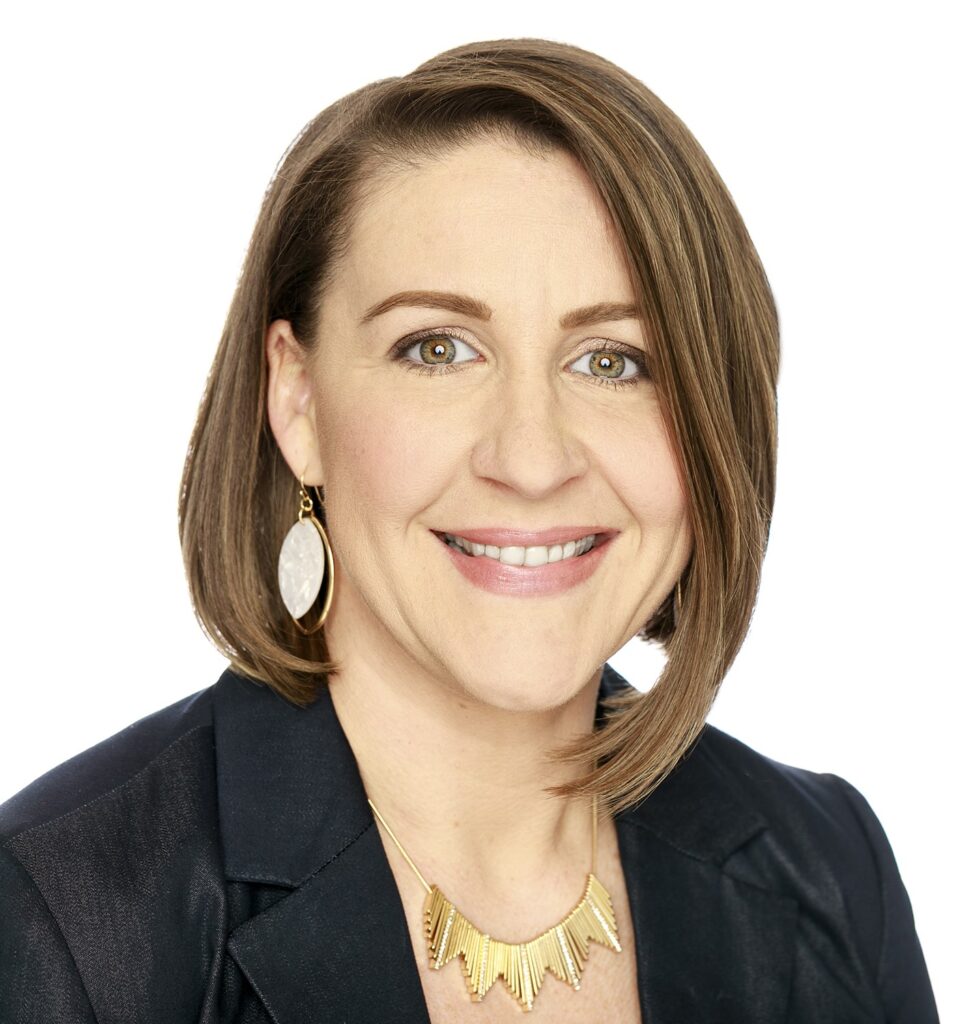
Nicole Kline-Elsier, P.E., PTOE is the Mid-Atlantic Regional Service Leader for Traffic and Planning at Bowman, where she has been involved in Transportation Engineering since her graduation from the Pennsylvania State University in 2002. At Bowman, she leads large-scale public traffic engineering contracts for the PA Turnpike Commission and PennDOT, and she manages private development work in PA, DE and MD. Throughout her career, she has maintained a continued involvement in ITE through the Mid-Atlantic Section and the Mid-Colonial District. Nicole is a 2017 graduate of the LeadershipITE program, and she served as a Local Arrangements Committee co-chair for the 2024 ITE International Annual Meeting in Philadelphia. One of her favorite volunteer roles is serving as the emcee for the annual ITE Mid-Colonial District collegiate traffic bowl.
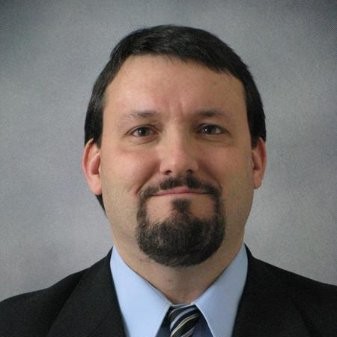
Mike Mudry, PE is the Regional Manager of TPD’s Pittsburgh Office, bringing nearly 30 years of experience in transportation engineering to the role. A proud graduate of Penn State, he holds both a BS and MS in Civil Engineering. Mike has been an active member of the Institute of Transportation Engineers (ITE) for over three decades, serving as a past president of both the Penn State ITE student chapter and the Mid-Atlantic Section of ITE (MASITE). At TPD, Mike oversees several municipal clients and manages large-scale traffic engineering projects. He is dedicated to mentoring the next generation of engineers in the many facets of transportation engineering. Outside of work, Mike enjoys participating in trivia nights at the neighborhood pub and spending quality time on family vacations at the beach.
Key Discussion Topics:
- Unseen Aspects of Project Management:
- Exploring the surprising elements and challenges of managing engineering projects.
- Discussing the skills and knowledge that go beyond technical expertise.
- Balancing Technical and Managerial Responsibilities:
- Sharing experiences of maintaining involvement in the technical aspects of projects while managing them.
- Highlighting the importance of delegating tasks and trusting team members.
- Unexpected Responsibilities:
- Identifying the roles and tasks that project managers may not anticipate.
- Discussing the importance of communication, budgeting, and stakeholder management.
- Lessons from Mismanagement:
- Sharing personal stories of project management mishaps and how they were resolved.
- Providing insights on learning from mistakes and improving management practices.
- Advice for Aspiring Project Managers:
- Offering practical tips and strategies for those new to project management.
- Discussing the importance of continuous learning and professional development.
Potential Questions for Panelists:
- What kinds of things surprised you about managing projects?
- Were there any specific challenges you did not expect?
- How much do you still participate in the technical side of the work?
- How do you balance technical involvement with managerial responsibilities?
- What are some responsibilities you didn’t expect to have as a project manager?
- How did you adapt to these new roles?
- Can you share a time when you may have mismanaged something, and how did it get resolved?
- What lessons did you learn from this experience?
- What skills or knowledge do you wish you had before starting your first project management role?
- How did you acquire these skills over time?
- How do you manage communication and coordination among team members and stakeholders?
- What strategies have you found effective in ensuring clear and consistent communication?
- What advice would you give to engineers who are transitioning into project management roles?
- Are there specific steps or preparations that can help ease this transition?
Morning Session #2
Preparing for Licensing – Heritage Hall
Panel Discussion
Obtaining professional licensure is a significant milestone in many careers, representing both a culmination of rigorous academic training and the beginning of a new phase of professional development. This panel discussion brings together seasoned professionals who have successfully navigated the licensure process to share their experiences, strategies, and advice. The session aims to demystify the licensure journey, offering practical tips on how to prepare effectively for exams, integrate work experience into study routines, and understand the impact of licensure on professional life.
About the PanelistsModerator

Sarah Adsit, P.E. is a Project Engineer with Bowman based out of Pittsburgh, PA. She holds a Master of Science in Civil Engineering from Purdue University (2021) and Bachelor’s of Science in Civil Engineering from Penn State (2019). At Bowman, she provides traffic engineering services for a range of public and private clients, focusing on preparation and review of traffic studies, GIS mapping, and transportation planning projects. She’s also passionate about ITE, has been involved since her days as a student at Penn State and continues to volunteer at the District and Section levels.
Panelists
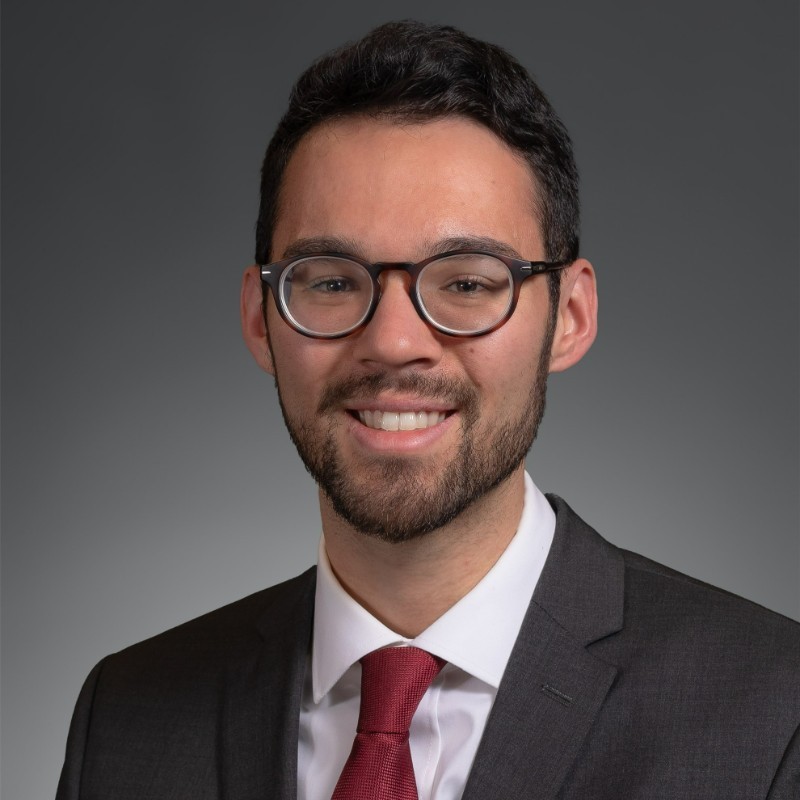
Owen Hitchcock, PE, PTOE is a traffic engineer in Baltimore, MD with RK&K. He works on a variety of traffic analysis projects focusing on safety and operations. His projects range from small intersection studies to 20-mile long interstate safety studies. Owen graduated from Penn State University with his Bachelors (2016) and Masters (2018) and has been at RK&K since.

Tyler Hartman, PE, PTOE, RSP1 is a Project Engineer II at RK&K with 8 years of experience in traffic engineering. He holds a bachelor’s degree in civil engineering from Widener University and is licensed in Delaware, Pennsylvania, Texas, Ohio, Maine, and Nevada. Tyler specializes in traffic signal design, ITS/ITMS, signing and striping, and maintenance of traffic (MOT) plans. He has led and managed numerous complex projects across Delaware, Texas, Ohio, and Pennsylvania. Active in ITE, Tyler serves as a committee chair at multiple levels and as the Awards Chair for the Central Pennsylvania Engineers Week Council.

Drake Lenker, EIT grew up in the small town of Gratz, PA. He graduated from Pennsylvania College of Technology in May 2020 with a Bachelor’s degree in Civil Engineering Technology and a minor in Mathematics. Since then, Drake has been working as a Transportation Planning Specialist at TPD’s Harrisburg office, where he specializes in preparing Transportation Impact Studies. Outside of work he enjoys mountain biking.
Key Discussion Topics:
- Navigating the Licensure Process:
- Understanding the steps involved in obtaining licensure.
- Discussing the common challenges and obstacles faced during the process.
- Effective Study Strategies:
- Sharing methods and resources for studying effectively for licensure exams.
- Leveraging Work Experience:
- Exploring how real-world work projects and experiences can enhance exam preparation.
- Discussing the relevance of practical skills and knowledge in the context of licensure exams.
- Impact of Licensure on Professional Life:
- Examining how professional responsibilities and opportunities change post-licensure.
- Discussing the added value of licensure in career advancement and professional credibility.
- Advice for Aspiring Licensees:
- Offering guidance and encouragement to those currently preparing for licensure exams.
- Providing insights on how to stay motivated and focused throughout the process.
Potential Questions for Panelists:
- What was the most difficult part of the licensure process for you?
- How did you overcome these challenges?
- How did you study for these exams most effectively?
- Were there specific strategies or resources that you found particularly helpful?
- How did your work experience prepare you for the licensure exams?
- Can you provide examples of projects or tasks that were directly applicable to exam content?
- How does your professional life differ now that you are licensed?
- What new responsibilities or opportunities have arisen since obtaining your license?
- Can you describe a specific instance where your practical work experience significantly aided your exam preparation?
- How did you integrate work and study effectively?
- What advice would you give to someone currently preparing for licensure exams?
- Are there any common pitfalls to avoid or best practices to follow?
- In what ways has licensure impacted your career trajectory?
- Have you noticed a difference in professional recognition or career opportunities?
Ace the Interview – HUB 131
Interactive Session
Mastering the art of the interview is essential for students and young professionals aiming to make a strong impression on potential employers. This interactive session, “Ace the Interview,” provides a unique opportunity for participants to engage in mock interviews with experienced professionals who are regularly involved in the hiring process. Through these hands-on experiences, attendees will gain valuable insights and personalized feedback to enhance their interviewing skills and boost their confidence.
About the Interviewers
Jon Crisafi, PE, PTOE has expertise in traffic operations analysis, signal and roundabout operations and design, long-range planning, bicycle and pedestrian operations, and microsimulation. His areas of expertise are in signal design, including transit signal priority (TSP) and automated traffic signal performance measures (ATSPM) implementation, and microsimulation, including multi-resolution corridor modeling to small single intersections and roundabouts. Jon has contributed to a wide variety of projects as project manager, task manager, and designer/modeler within the DC, Virginia, and Maryland metropolitan area and actively supports traffic modeling and traffic signal design efforts in Florida.
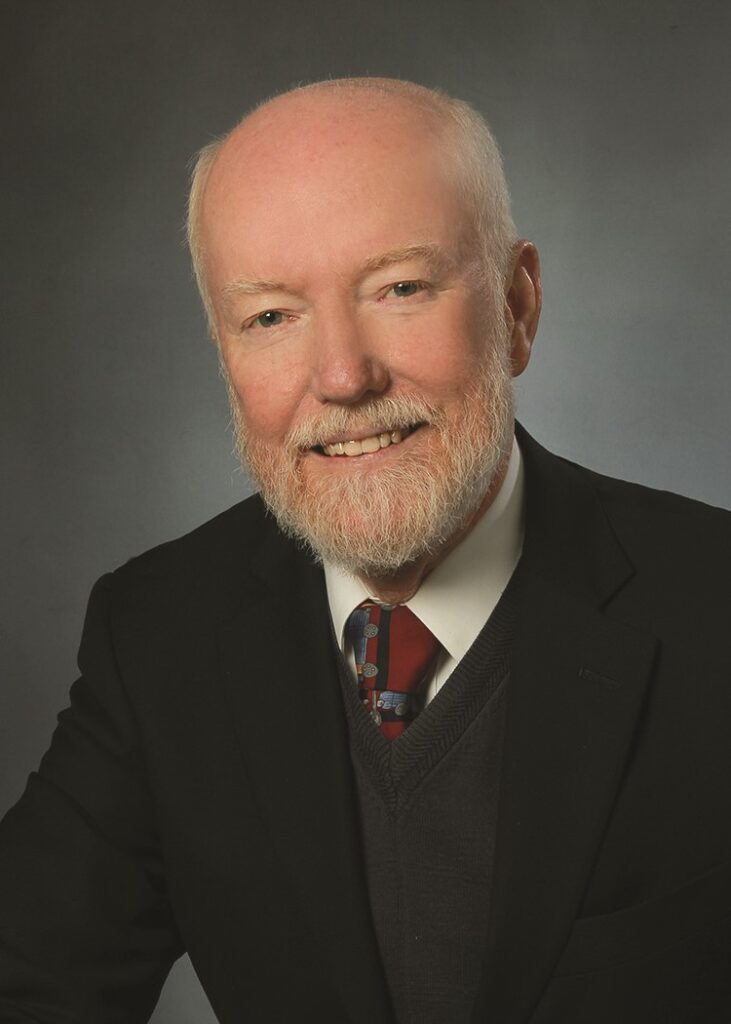
Hugh Mose, PE served as General Manager of the Centre Area Transportation Authority (CATA) in State College, Pennsylvania, for nearly twenty years prior to his retirement. During that time CATA rose to prominence as one of the nation’s premier small transit agencies, and was the first transit system on the East Coast to operate a 100% CNG bus fleet. Prior to his tenure at CATA Hugh managed transit systems in Iowa, California and Washington State.
Throughout his long career Hugh has been very active in the transit industry, serving on various bodies including the Board of Directors and Executive Committee of the American Public Transportation Association and the Board of the American Public Transportation Foundation. Since retirement Hugh has continued his industry involvement through a transportation consulting practice, teaching for the National Transit Institute, and serving as an Ambassador for the Transit Cooperative Research Program.
A graduate in Civil Engineering from Bucknell University in Lewisburg, PA, Hugh also holds an M.S. degree in Transportation and Urban Systems from the University of Maryland, College Park. He has been a registered Professional Engineer since 1976. On a personal note, for over thirty years he and his wife Janyce have shared their home with a succession of retired professional athletes – racing greyhounds!
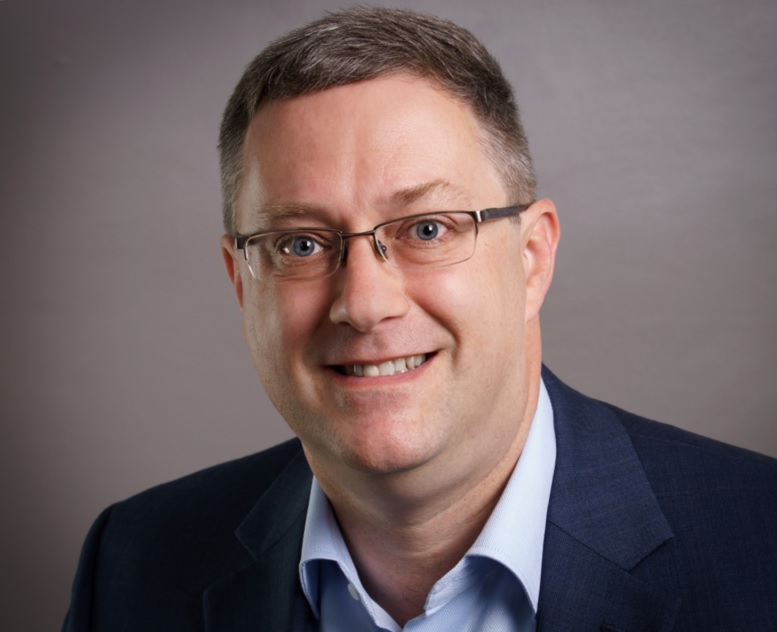
Jeff Riegner, PE, AICP, PTOE, RSP1 is a Senior Principal at Kittelson & Associates, based in the Philadelphia office. He is a professional engineer and certified planner with more than 30 years of transportation consulting experience, working with public-sector clients in more than 20 states. Jeff’s primary technical focus areas are Complete Streets and active transportation, with an emphasis on safety. He serves as Chair of the National Complete Streets Coalition and was past chair of the ITE Pedestrian and Bicycle Council. Jeff holds degrees from the University of Delaware and the University of California at Berkeley.

Eric Womeldorff, PE is a seasoned transportation planner and consultant with 20 years of professional experience. Having led numerous transportation and land use projects across the San Francisco Bay Area and beyond, he brings an exceptional depth of expertise to his current role in Washington, D.C., where he oversees Fehr & Peers’ office. Eric has worked with a diverse set of public, private, and institutional clients, helping them navigate complex transportation challenges and make strategic decisions.
His work spans a wide variety of projects, including transportation planning for mixed-use developments, life science campuses, and major arenas like those in San Francisco and San Jose. As a consultant for UCSF and the San Francisco Municipal Transportation Agency, Eric has guided high-profile transportation and land use strategies. He has also partnered with companies like Uber and Lyft to address evolving transportation demands.
In addition to his consulting work, Eric leads Fehr & Peers’ Transportation Economics practice, where he has developed thought leadership and resources that help planners and engineers create more effective and innovative transportation solutions. He continues to influence the field by playing a key role in the development of a new city in California, focusing on sustainable transportation modes and forward-thinking parking strategies.
Key Session Features:
- Mock Interviews with Professionals:
- Participants will sign up in advance for a 20-minute mock interview slot with a professional interviewer.
- Interviews will simulate real-world interview scenarios, providing a practical and realistic experience.
- Constructive Feedback:
- Following each mock interview, interviewers will provide detailed, constructive feedback to the interviewee.
- Feedback will focus on strengths, areas for improvement, and specific tips for future interviews.
Responding to Transportation Emergencies: Learning from Infrastructure Catastrophes – HUB 233B
Classroom Session
In the wake of infrastructure catastrophes, such as the I-95 collapse in Philadelphia and the Fern Hollow Bridge collapse in Pittsburgh, rapid and effective responses are critical to restoring functionality and ensuring public safety. This classroom session will delve into the challenges and strategies involved in managing transportation emergencies. Featuring presentations from experts involved in these high-profile responses, the session will provide valuable insights into the complex and urgent nature of emergency response in transportation engineering.
I-95 Bridge Collapse Emergency Response - David Adams, PE, PennDOT District 6-0In June 2023, an overturned tanker fire caused a collapse of the I-95 bridge at Cottman Avenue in Philadelphia and disruption to a major artery on the east coast. This presentation will discuss the initial response, damage assessment, and strategy to quickly reopening I-95 in 12 days.
Carrying 20,000 vehicles per day on Forbes Avenue in Pittsburgh, Pennsylvania, the Fern Hollow Bridge is a critical commuter route through the region and serves as a main detour for Interstate 376. The collapse of the steel bridge in the early morning of January 28, 2022, drew national attention and resulted in extensive local traffic congestion and user delays. The Fern Hollow Bridge replacement was a collaborative effort between federal, state and local agencies, designers, contractors, and stakeholders to transform a tragic incident into a source of community pride. Following an emergency declaration, the teams works concurrently to design and construct the bridge. They streamlined project delivery by using existing geotechnical studies and available material; while simultaneously procuring long lead time items early. Working alongside the Pennsylvania Department of Transportation, Federal Highway Administration, and City of Pittsburgh’s Department of Mobility and Infrastructure, the team submitted partial designs to meet the aggressive construction timeline. Less than 11 months after the collapse, the ribbon was cut on the new bridge due to the collaboration of all parties.

David Adams, PE is the Senior Manager for Traffic Operations in PennDOT District 6-0 which covers the Philadelphia region. Dave attended the Pennsylvania State University and graduated in 2003 with a Bachelor of Science degree in Civil Engineering. He also obtained a Master of Civil Engineering degree at the University of Delaware. His responsibilities include the Arterials Section, Freeway Section, Paint Crews, and the Southeastern Regional Traffic Management Center. He has been a licensed Professional Engineer since 2009 and has 20 years of service to the Commonwealth.
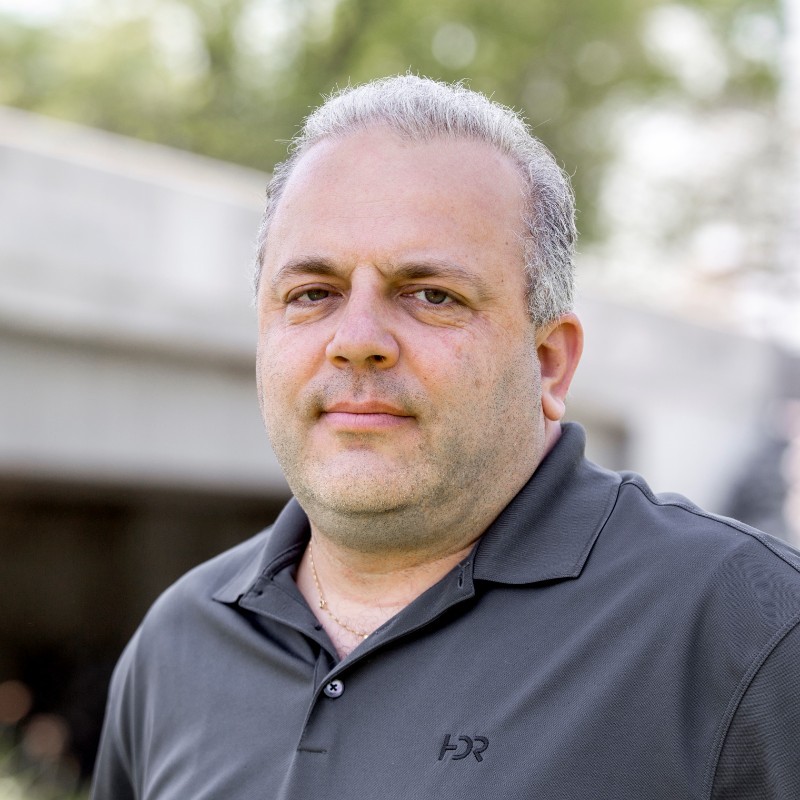
Jason Fuller, P.E., is a Vice President and Senior Project Manager at HDR. He graduated from Pennsylvania State University in 1992 with a BSCE and has 32+ years of experience managing and designing transportation projects with complex bridges and/or unique delivery processes including PennDOT’s Rapid Bridge Replacement Project (P3) that included 558 bridge replacements, the I-64 Design-Build Widening near St. Albans, WV (WVDOH’s largest D-B) and the Shenandoah River Bridge Design-Build near Charlestown, WV which was the largest steel Delta frame bridge built in the nation. Jason served as HDR’s Design Project Manager for the Fern Hollow Bridge Replacement Project.
Key Session Features:
- Case Studies of Major Infrastructure Collapses:
- Detailed presentations on the I-95 collapse in Philadelphia and the Fern Hollow Bridge collapse in Pittsburgh.
- Examination of the immediate impacts, response strategies, and long-term recovery efforts for each incident.
- Emergency Response Strategies:
- Discussion of the key components of effective emergency response plans for transportation infrastructure.
- Exploration of coordination efforts between various agencies, including local, state, and federal authorities.
- Challenges and Solutions:
- Analysis of the logistical, technical, and communication challenges encountered during the emergency response.
- Insights into the innovative solutions and approaches used to overcome these challenges.
- Lessons Learned:
- Sharing lessons learned from past responses to infrastructure emergencies.
- Identification of practices for future emergency preparedness and response planning.
Staying Involved After Graduation: Engaging with ITE as Young Professionals – HUB 134
Panel Discussion
Graduating from college marks a significant milestone, but it doesn’t mean the end of your involvement with ITE. This panel discussion brings together young professionals who have successfully transitioned from student members to active participants in ITE’s various activities. The session aims to provide students, recent graduates, and young professionals with insights and strategies on how to stay engaged with ITE, remain connected to their former student chapters, and contribute to the broader transportation engineering community.
About the PanelistsModerator

Sara Patterson, PhD, PE is a project manager at Michael Baker International and has degrees in architecture and civil engineering with research in multi-modal travel demand modeling. At Michael Baker, she has designed trails and managed I-95 design support contracts for PennDOT. She’s the chair of the LeadershipITE committee and a member of MASITE since 2011.
Panelists

Casey A. Moore, PE is an EVP/Regional Manager – Transportation at Bowman Consulting Group, Ltd. He has executive management responsibilities within the firm and for his business unit, helps to drive the services in transportation for Bowman across the larger firm footprint and continues to serve some clients and lead projects. In July 2023, Casey took an assignment with the Bowman Corporate team to provide Operations leadership over the national recruiting team. He was with McMahon for 31 years prior to McMahon joining Bowman in May 2022, ultimately serving as one of five of the firm’s Board of Directors and Executive Vice President of Corporate Operations with responsibilities firm-wide for all Corporate and support functions.
His early work experience included geotechnical engineering and construction services with PSI, Inc., but in his 31 years at McMahon and 2+ years now with Bowman, his service focus has been in transportation engineering, transportation planning, highway design, and signal design. Casey manages transportation engineering projects for a variety of public and private clients, including as Township Traffic Engineer for several Pennsylvania municipalities and as manager of several statewide PennDOT contracts. He additionally assists in business development for the firm and served for seven years as the McMahon Corporate Business Development Director. Casey has appeared before numerous municipal boards and commissions, as well as in County court to provide expert witness testimony/presentations.
In addition to his work responsibilities, Mr. Moore is involved and active in several professional affiliations, including the Penn State Engineering Alumni Society (PSEAS) – current Immediate Past President through 2025, Penn State Alumni Council – current executive board member and Chairperson of Membership & Marketing Committee, American Council of Engineering Companies (ACEC/PA) – current Secretary of the Executive Committee (officers) of the Board of Directors, Past President of Mid-Colonial District of ITE (2007), and Past President of the Mid-Atlantic Section of ITE (2004).

Nicole Kline-Elsier, P.E., PTOE is the Mid-Atlantic Regional Service Leader for Traffic and Planning at Bowman, where she has been involved in Transportation Engineering since her graduation from the Pennsylvania State University in 2002. At Bowman, she leads large-scale public traffic engineering contracts for the PA Turnpike Commission and PennDOT, and she manages private development work in PA, DE and MD. Throughout her career, she has maintained a continued involvement in ITE through the Mid-Atlantic Section and the Mid-Colonial District. Nicole is a 2017 graduate of the LeadershipITE program, and she served as a Local Arrangements Committee co-chair for the 2024 ITE International Annual Meeting in Philadelphia. One of her favorite volunteer roles is serving as the emcee for the annual ITE Mid-Colonial District collegiate traffic bowl.

Megan McDermott, PE is a Senior Project Engineer at ms consultants in Pittsburgh, PA and graduated Pennsylvania State University in 2001. Megan’s expertise includes traffic engineering, traffic studies and highway design. She is the Technical Lead for traffic, highway and utility tasks on projects and she mentors younger engineers within the company. Megan is the 2024 President of the Mid-Atlantic Section of the Institute of Transportation Engineers covering the local region of Pennsylvania, West Virginia, Delaware and portion of New Jersey.
Key Discussion Topics:
- Life as a Young Member of ITE:
- Exploring the experiences and benefits of being a young professional member of ITE.
- Discussing the opportunities for professional development, networking, and mentorship.
- Maintaining Ties with Former Student Chapters:
- Sharing ways to stay connected and involved with student chapters after graduation.
- Highlighting the mutual benefits of maintaining these connections for both graduates and current students.
- Involvement with ITE Sections and Districts:
- Discussing the roles and responsibilities of being involved in ITE sections and districts.
- Providing insights into how panelists became active in their local sections and districts.
- Strategies for Continued Engagement:
- Offering practical advice on how to balance professional work with continued involvement in ITE.
- Identifying resources and opportunities for young professionals to stay engaged and contribute.
- Impact of Continued Involvement:
- Examining the long-term benefits of staying involved with ITE for career advancement and professional growth.
- Discussing the personal and professional satisfaction derived from active participation in ITE activities.
Potential Questions for Panelists:
- What is life like as a young member of ITE?
- What are some of the key benefits and opportunities you have experienced?
- How do you find yourself tied to your former student chapter?
- What activities or initiatives have you participated in to maintain this connection?
- How are you involved with your ITE section or district, and how did you get there?
- Can you describe the process of becoming active in your local section or district?
- What strategies have you found effective in balancing your professional responsibilities with continued involvement in ITE?
- Are there specific time management tips or resources you would recommend?
- Can you share an example of a rewarding experience you’ve had as a young professional member of ITE?
- How did this experience contribute to your professional development?
- What advice would you give to recent graduates about staying involved with ITE?
- Are there particular steps they should take to ensure continued engagement?
- How has your involvement with ITE impacted your career trajectory?
- Have you noticed specific benefits in terms of networking, job opportunities, or skill development?
Afternoon Session
Career Fair – Heritage Hall
A one-of-a-kind career fair dedicated exclusively to the transportation sector. Students – seize this chance to connect directly with potential employers. Professionals – don’t miss the opportunity to discover your next outstanding hire.
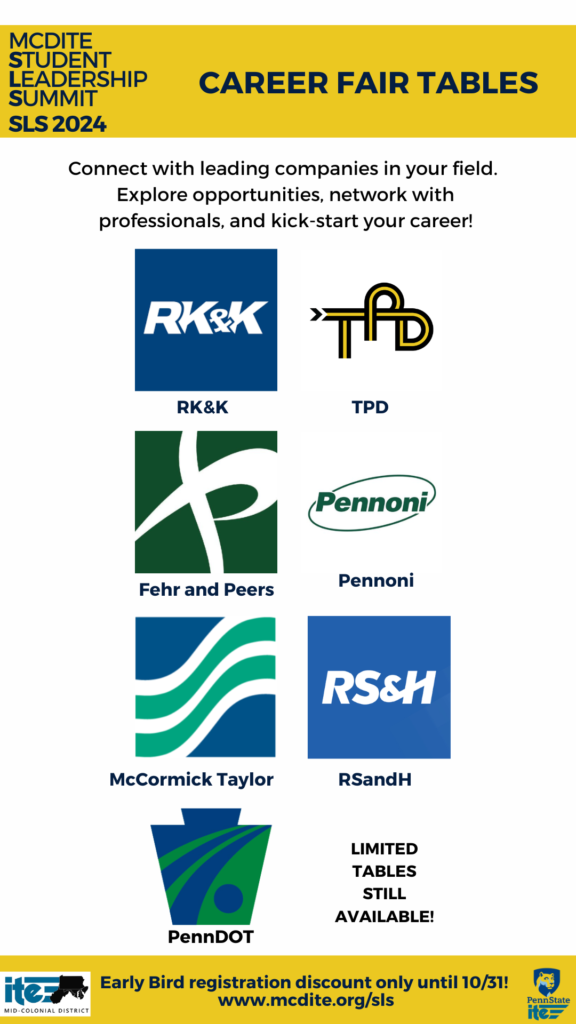
Strike Three Pitch Competition – HUB 131
Interactive Session
The “Strike Three Pitch Competition” offers an exciting platform for students and young professionals to showcase their work through concise and compelling presentations. The competition is designed to inspire and challenge participants to effectively communicate the significance and impact of their work within a limited timeframe. By participating in this session, students and young professionals will gain valuable experience, receive constructive feedback, and compete for recognition as a top presenter. This session promises to be both educational and motivational, fostering a spirit of innovation and excellence in communication.
About the Judges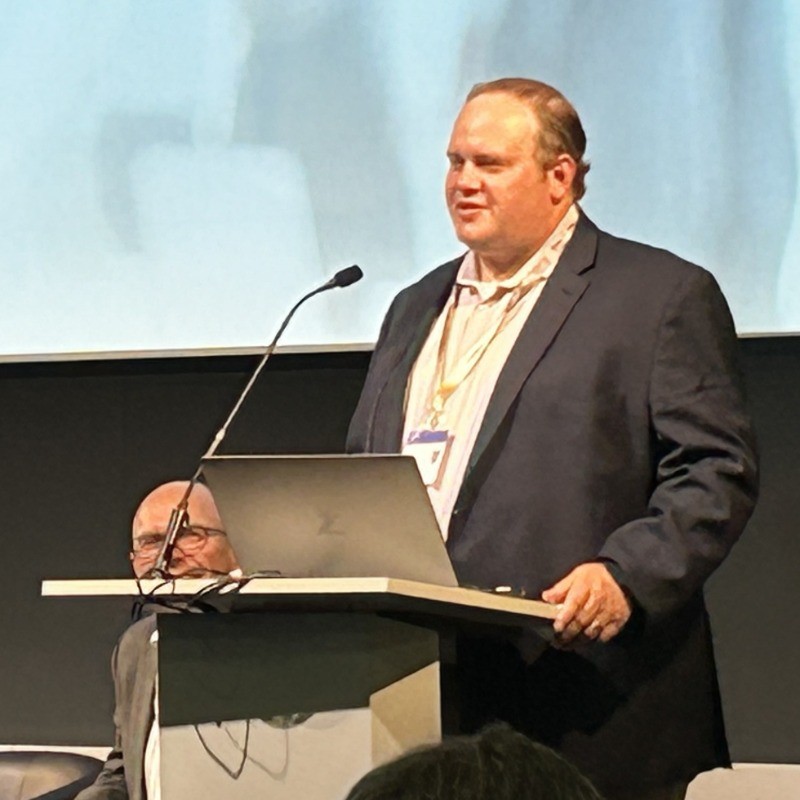
Eric Rensel formed Rensel Consulting, LLC in 2023 after a successful 25-year career in engineering consulting with a motto of helping clients turn thoughts of transformation into actions of empowerment. Throughout his career Eric has transitioned between many different aspects of transportation engineering and planning. Eric graduated from Penn State University in 2000 and lives near Harrisburg Pennsylvania with his wife and their two children. Eric has had the opportunity to visit 47 states and 22 countries throughout his career. These experiences in other cultures and environments have shaped the way Eric views community development, equitable communities, and thriving communities. In 2023, Eric threw his hat in the ring to run for ITE International Vice President. Although his campaign was unsuccessful, he was able to engage in rich discussions with a wide variety of people about the importance of workforce development.

Jeff Riegner, PE, AICP, PTOE, RSP1 is a Senior Principal at Kittelson & Associates, based in the Philadelphia office. He is a professional engineer and certified planner with more than 30 years of transportation consulting experience, working with public-sector clients in more than 20 states. Jeff’s primary technical focus areas are Complete Streets and active transportation, with an emphasis on safety. He serves as Chair of the National Complete Streets Coalition and was past chair of the ITE Pedestrian and Bicycle Council. Jeff holds degrees from the University of Delaware and the University of California at Berkeley.
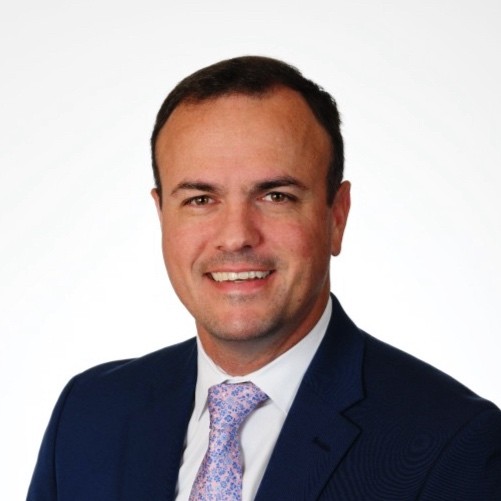
Todd Trautz, PE, PTOE is the Director of Transportation Technical Services for Michael Baker International in Harrisburg, PA. Additionally he is the Traffic/ITS Practice lead for Michael Baker’s Great Lakes Region. After graduating from Penn State University, he now has 16 years of consulting engineering experience primarily in the various topics within transportation systems management and operations. Outside of work he loves to play golf and soccer.
Key Session Features:
- Live Pitch Presentations:
- Participants will deliver their three-minute pitches in person during the session. Participants are encouraged to use visual aids such as PowerPoint presentations, posters, video demonstrations, etc.
- Each presentation will be followed by a brief Q&A session with the judges.
- Judging Criteria:
- Presentations will be evaluated on clarity of message, conciseness, and effectiveness in engaging the audience.
- Judges will consider the overall impact and potential applications of the research or project.
- Click to Review the Judging Rubric
- Constructive Feedback:
- After each presentation, judges will provide constructive feedback to help participants improve their pitching skills.
- Feedback will focus on strengths, areas for improvement, and suggestions for enhancing future presentations.
- Announcement of Winner:
- At the conclusion of the session, the panel of judges will declare a winner based on the overall quality of the presentations.
- The winner will be recognized for their outstanding ability to communicate their work effectively in a short timeframe.
Potential Topics for Presentations:
- Research Findings: Summarizing key findings and implications of research projects.
- Innovative Solutions: Presenting innovative solutions to current challenges in various fields.
Public vs. Private vs. Academia: Careers in Transportation Engineering – HUB 233B
Panel Discussion
The field of transportation engineering offers diverse career paths across the public sector, private industry, and academia, each with its unique opportunities and challenges. This panel discussion brings together experienced professionals from each of these sectors to provide insights into their work environments, career trajectories, and personal experiences. The session aims to help current and aspiring transportation engineers understand the distinctions between these sectors and make informed decisions about their career paths.
About the PanelistsModerator

Robert Watts, PE, PTOE, AICP has over 25 years of engineering and planning experience in traffic engineering, travel demand modeling, transportation studies, and project development & programming. He is currently a Sr. Project Manager with McCormick Taylor in State College, PA. Mr. Watts holds Bachelor and Master of Engineering degrees in Civil Engineering from Penn State University and is a registered Professional Engineer in Pennsylvania, New Jersey, and Virginia.
Panelists
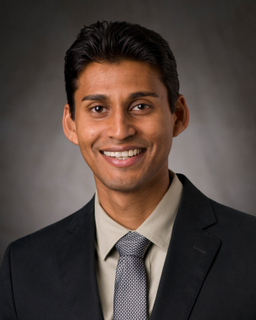
Dr. Vikash V. Gayah is a professor in the Department of Civil and Environmental Engineering at The Pennsylvania State University, where he also serves as the Interim Director of the Larson Transportation Institute. He received his B.S. and M.S. degrees from the University of Central Florida and his Ph.D. degree from the University of California, Berkeley. Dr. Gayah’s research focuses on urban mobility, traffic operations, traffic flow theory, traffic safety and non-motorized transportation. Dr. Gayah currently serves as an editorial advisory board member of Transportation Research Part C: Emerging Technologies and Accident Analysis and Prevention, an editorial board editor of Transportation Research Part B: Methodological, an associate editor for Transportation Letters and the IEEE Intelligent Transportation Systems Magazine (an international peer-reviewed journal), a handling editor for the Transportation Research Record. He is a member of the Transportation Research Board’s Standing Committee on Access Management (ACP60) and Traffic Flow Theory and Characteristics (ACP50), the latter of which he serves as the committee research coordinator and a paper review coordinator, and also serves as a paper review coordinator for the TRB Safety Performance and Analysis Committee (ACS20).

Steve Gault, PE, PTOE carries out the Pennsylvania Department of Transportation’s goal of moving humans and their stuff safely and efficiently from Point A to Point B as Chief of the TSMO Arterials and Planning Section. In this role, he oversees PennDOT’s Transportation Systems Management & Operations (TSMO) Program. Steve is a civil engineering graduate of Rensselaer Polytechnic Institute, a registered Professional Engineer, and a certified Professional Traffic Operations Engineer. Steve currently serves as the Secretary for the Mid-Atlantic Section of ITE.

Bryan Pounds is a Public Transportation and Infrastructure Advisor at McKinsey & Company, based in Boston. In this role, Bryan serves public sector clients across the value chain, including agency wide vision setting and top team effectiveness, organizational planning, capital portfolio optimization and investment strategies, performance-based planning, and capital delivery excellence. In prior roles at SP&K Engineering and WSP, Bryan served state and local entities on multimodal planning, project development, capital investment strategies, and grants management. Bryan is an active member of the Transportation Research Board (TRB)’s Standing Committee on Strategic Management.
In the public sector, Bryan served the Commonwealth of Massachusetts Metropolitan Planning Organizations (MPOs) as Chair, and administered MassDOT’s $8 billion federal aid program for eight years in the Office of Transportation Planning in Boston. In this role, he received the Governor’s Citation for Outstanding Performance in 2019 for the facilitation of key funding considerations on major projects in Capital Investment Plan (CIP). He was nominated for the American Association of State Transportation Officials (AASHTO) Vanguard Award in 2020 for leading development of a capital investment planning tool for use by DOT program managers and MPO planning staff which has since been adopted by several DOTs throughout the US.
Bryan holds a B.S. in Civil Engineering from Penn State University, and an M.P.A from the University of Massachusetts.

Katherine Kortum, PhD, PE, PMP is a Senior Program Officer at the Transportation Research Board where she manages research and events on data and data science. She is also on the TR News magazine editorial board. Katherine is a member of ASCE’s Committee on America’s Infrastructure, has chaired citizens’ advisory groups for both the Washington DC MPO and for the WMATA transit system, has chaired other committees for ASCE, ITE, and WTS. She was a Robert Bosch fellow in Berlin, Germany, on shared and integrated mobility research projects, and during the pandemic, she worked with the DC Department of Health overseeing logistics and processing for the District’s COVID-19 testing and vaccination response. She holds an MS and PhD in Transportation Engineering from The University of Texas at Austin, a BS in Civil Engineering from the University of Pittsburgh, and an MBA from the University of Illinois.
Key Discussion Topics:
- Understanding Sector Differences:
- Exploring the roles, responsibilities, and work environments in public, private, and academic sectors.
- Discussing the benefits and drawbacks of working in each sector.
- Career Path Decisions:
- Sharing personal stories of how panelists chose their career paths.
- Highlighting factors that influenced their decisions to enter or switch between sectors.
- Sector-Specific Experiences:
- Comparing and contrasting the types of projects and work in public vs. private vs. academia.
- Discussing the skills and knowledge unique to each sector.
- Professional Development and Growth:
- Examining opportunities for advancement and professional growth in each sector.
- Discussing the impact of sector-specific work on career trajectories and job satisfaction.
- Advice for Aspiring Engineers:
- Offering guidance on how to choose the right sector based on individual goals and interests.
- Providing tips on how to transition between sectors and what to consider when making such a move.
Potential Questions for Panelists:
- What kind of work do you do in your current sector (public, private, academia)?
- Can you describe a typical project or day in your role?
- How did you choose your current career path in transportation engineering?
- What factors were most important in making your decision?
- For those who have switched sectors, what made you decide to switch from one sector to another?
- How was the transition process?
- What parts of working in the public/private/academic sector do you prefer over the others?
- Are there specific advantages or disadvantages you have noticed?
- What do you miss about your previous job or sector?
- Are there aspects of your former role that you find lacking in your current position?
- How do opportunities for professional development and advancement differ between the public, private, and academic sectors?
- Which sector do you believe offers the best growth opportunities?
- Can you share an example of a particularly rewarding project or experience in your sector?
- What made it stand out?
- What advice would you give to aspiring transportation engineers when choosing between public, private, and academic careers?
- Are there specific steps or considerations that can help in making an informed choice?
Events subject to change
Venue
Day 1
HUB-Robeson Center
The HUB-Robeson Center is the main Student Union building at Penn State and will host all events on Day 1.
Heritage Hall, HUB 134, and HUB 131 are on the first floor, while HUB 233 AB is on the second floor. The northern entrance from Pollock Road is on the first floor, while the eastern entrance from the HUB Parking Deck or southern entrance from the HUB lawn are on the ground floor.
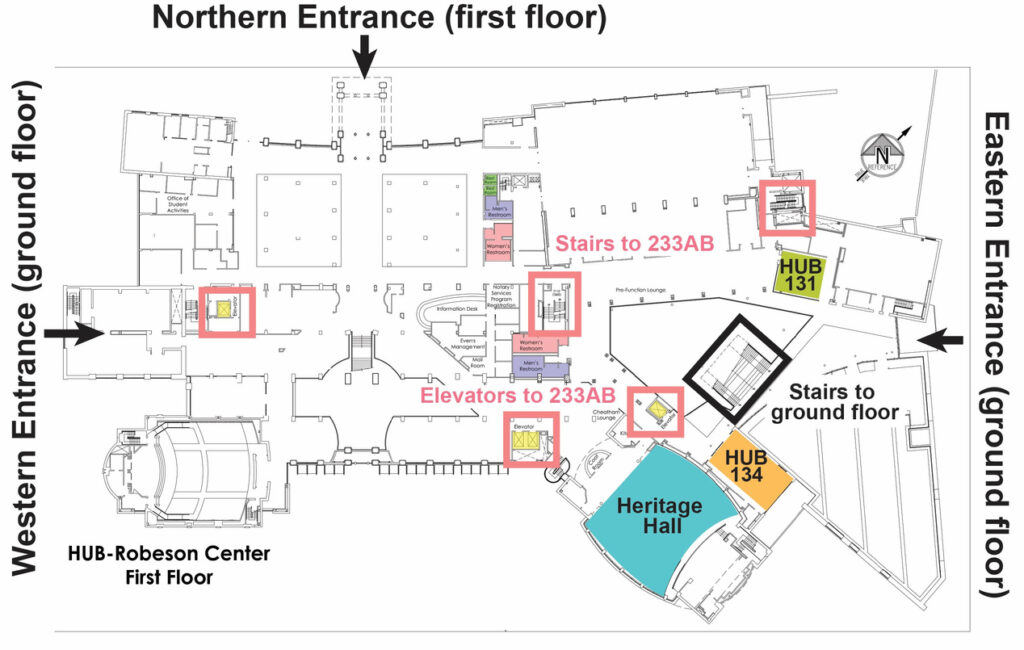
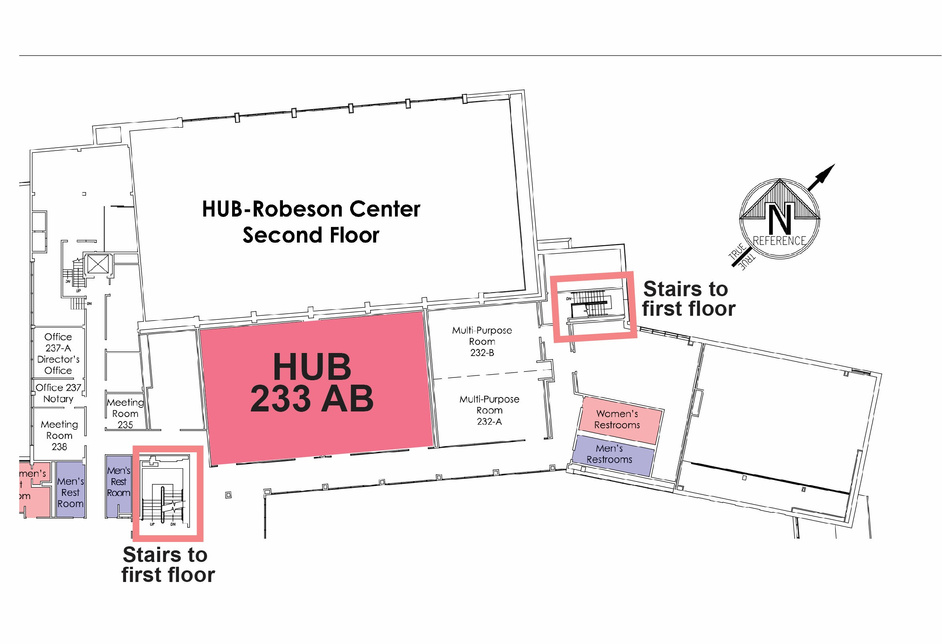
Day 2
Larson Transportation Institute Test Track
The Larson Transportation Institute’s Test Track will host the Technical Tour – CAV Demonstration!
The LTI Test Track is located at: 164 Test Track Rd, Bellefonte, PA 16823
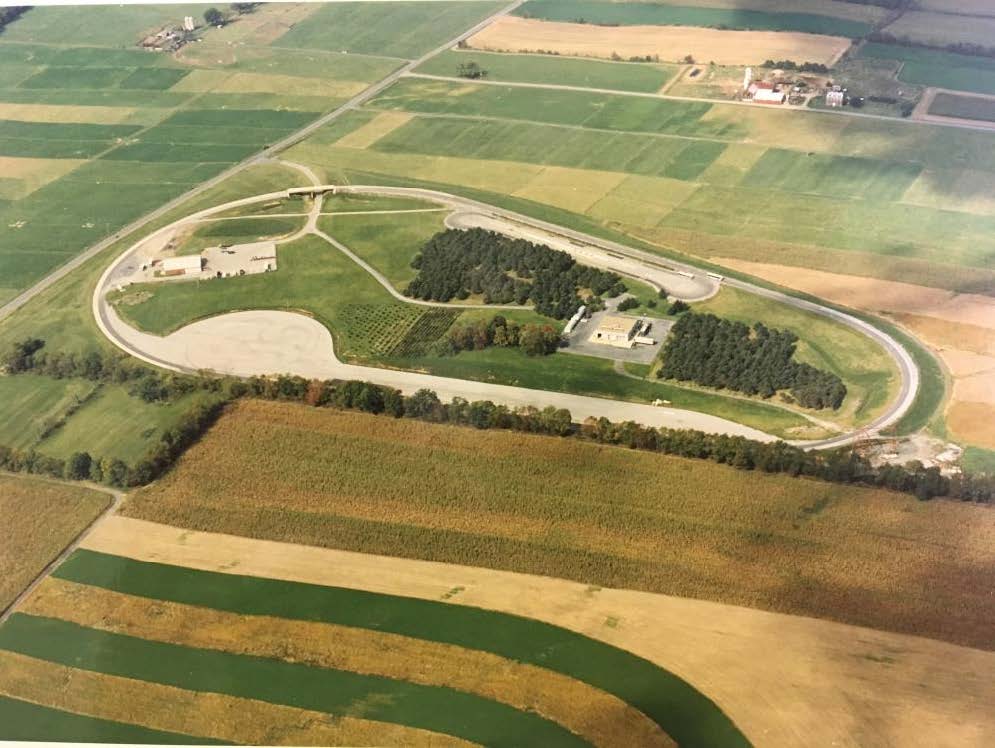
Engineering Collaborative Research and Education (ECoRE) Building
Located on the west side of campus, ECoRE is the new home of the Department of Civil and Environmental Engineering at Penn State
The Day 2 Social will be held in ECoRE Room #504

Transportation & Parking
On-Campus Parking
- HUB Parking Deck
- East Parking Deck
- Eisenhower Parking Deck
- Nittany Parking Deck
- West Deck
Campus parking rates: $2-1st hr; $1 each add’l hr ($16 daily max.)
Off-Campus Parking
- Pugh Street Garage
- McAllister Street Garage
- Fraser Street Garage
- Beaver Avenue Garage
- On-Street Parking
Off-campus parking rates: Free – 1st 30 mins; $1-1st hr; $1 each add’l hr ($20 – 24 hrs.)
We recommend using the ParkMobile app for additional parking options.
Accommodation
Unfortunately, hotel room blocks are not available for the Student Leadership Summit. A number of hotels convenient to the SLS have been listed below.
- Country Inn & Suites by Radisson, State College
- Hilton Garden Inn State College
- Hampton Inn State College
- Days Inn by Wyndham Penn State
- Comfort Suites near Penn State
- The Penn Stater Hotel & Conference Center
- Nittany Lion Inn
- The Graduate
- Hyatt Place State College
Financial assistance is available for students to cover the cost of accommodation, including the annual funding provided by MASITE/CAPSITE and the Mid-Colonial District. For budget-friendly accommodation options, please contact Adway Das – amd7293@psu.edu.
Sponsor the SLS
We are offering a variety of sponsorship tiers for organizations who wish to support the 2024 MCDITE Student Leadership Summit! Sponsors can register online through the link below to pay with a credit/debit card (with an added processing fee) or by check for free by contacting Adway Das.
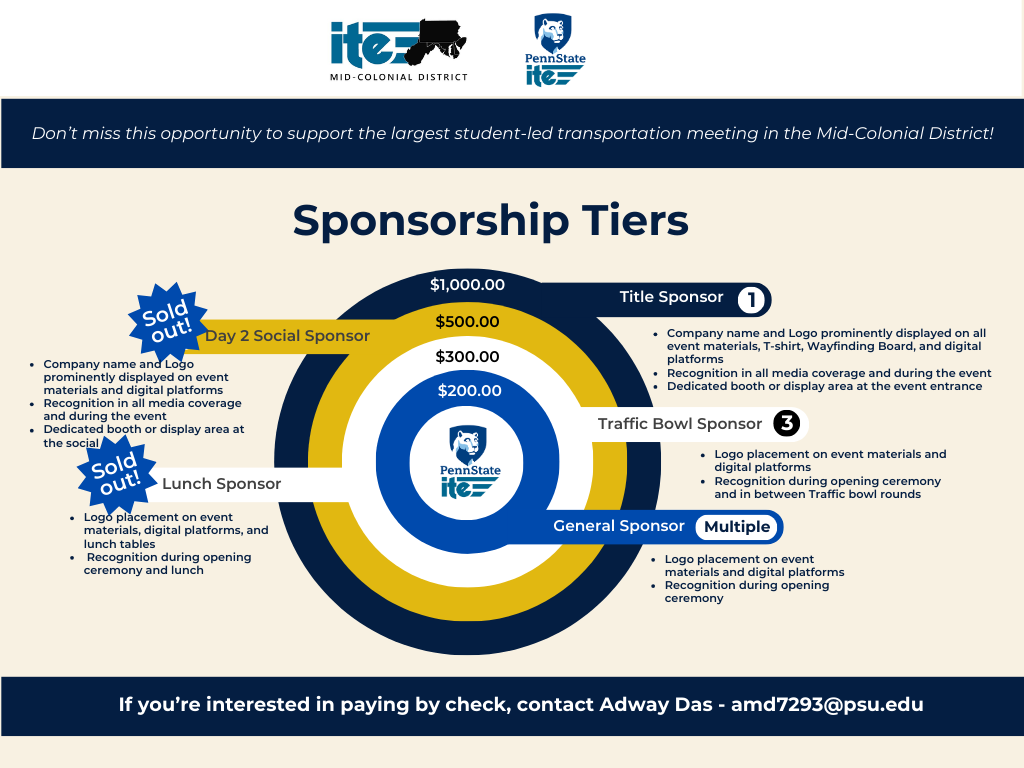

Gallery
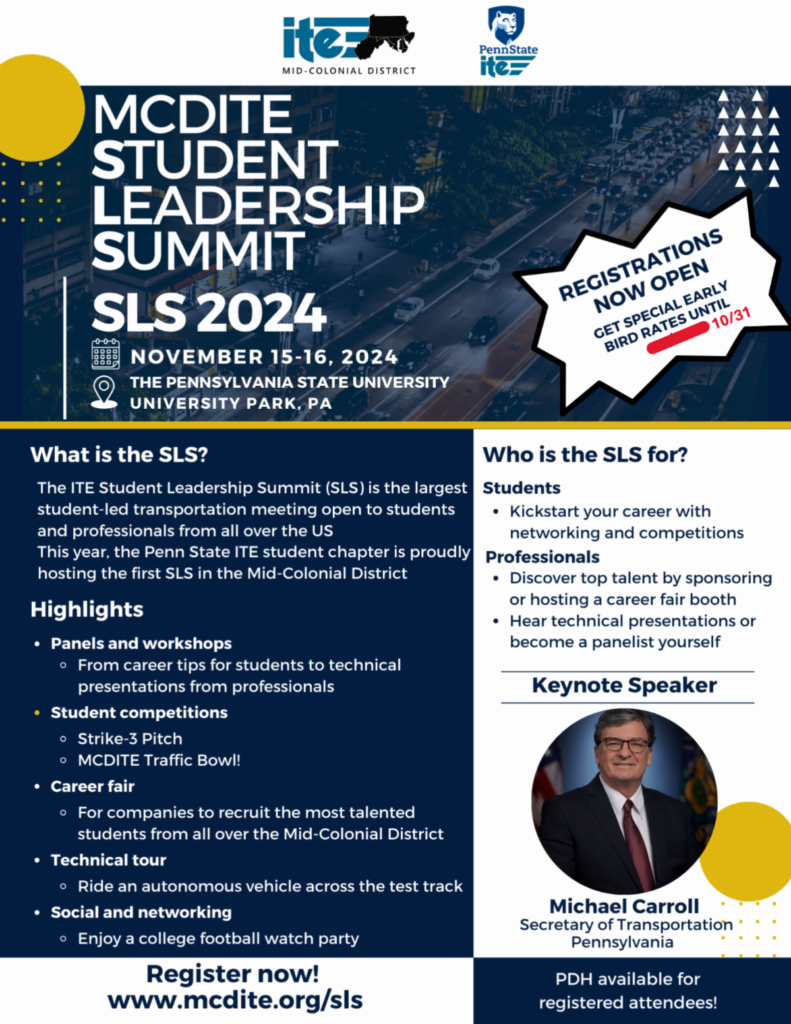
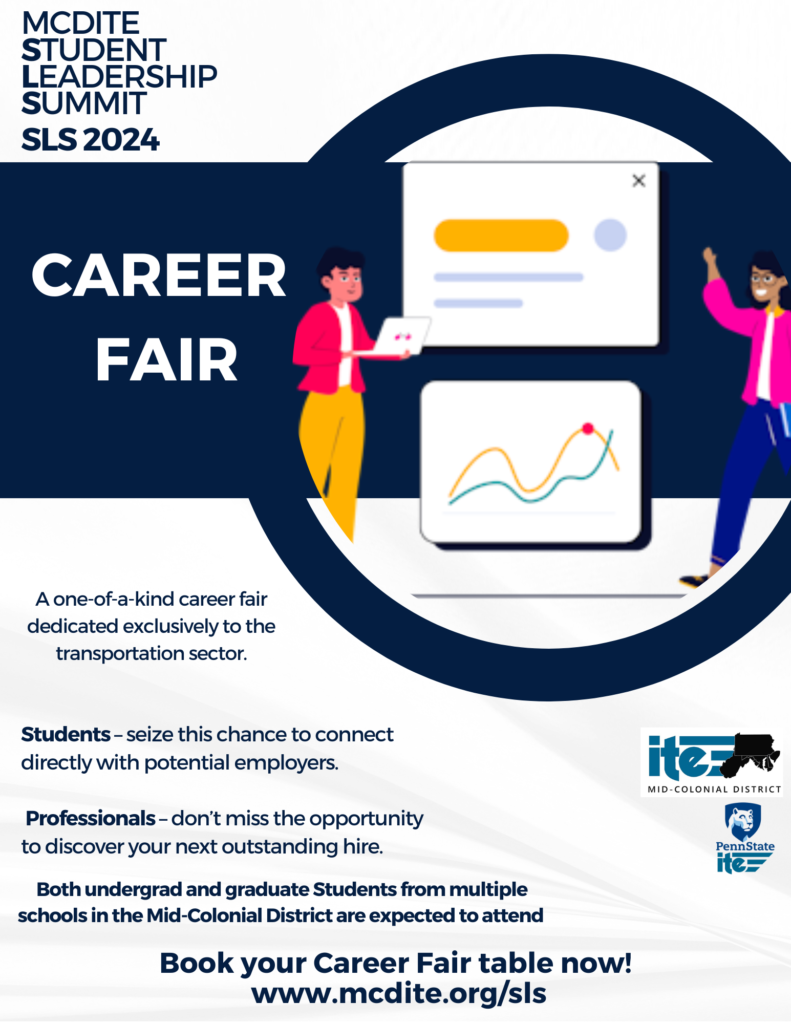
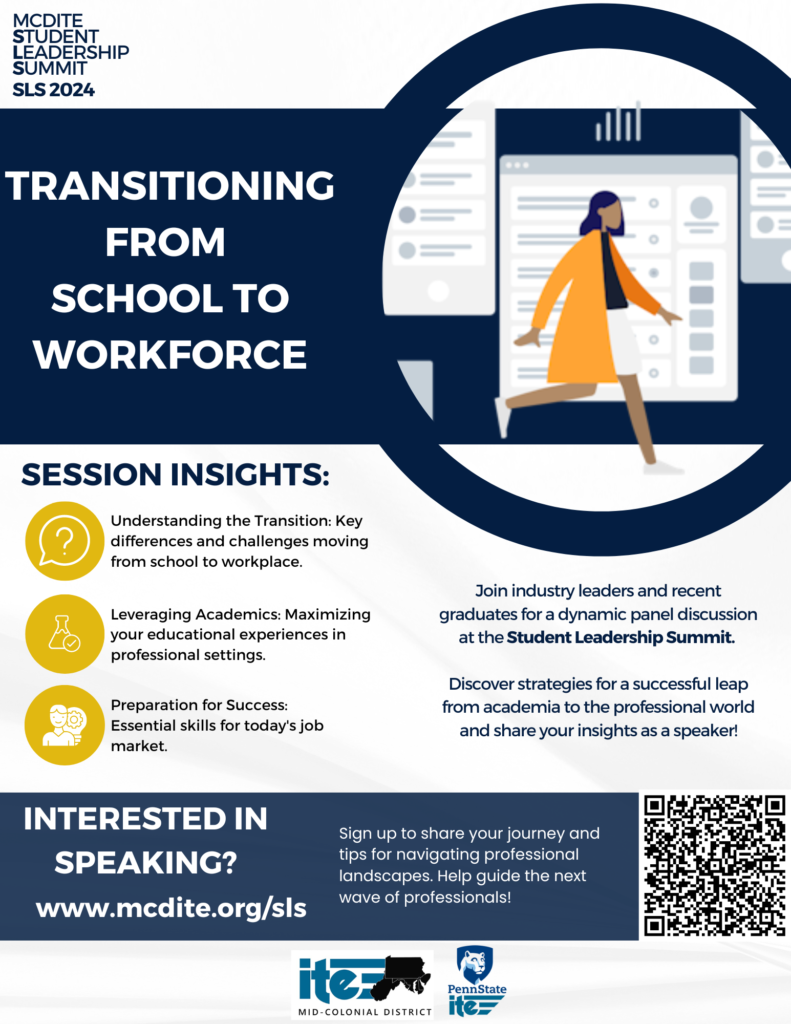
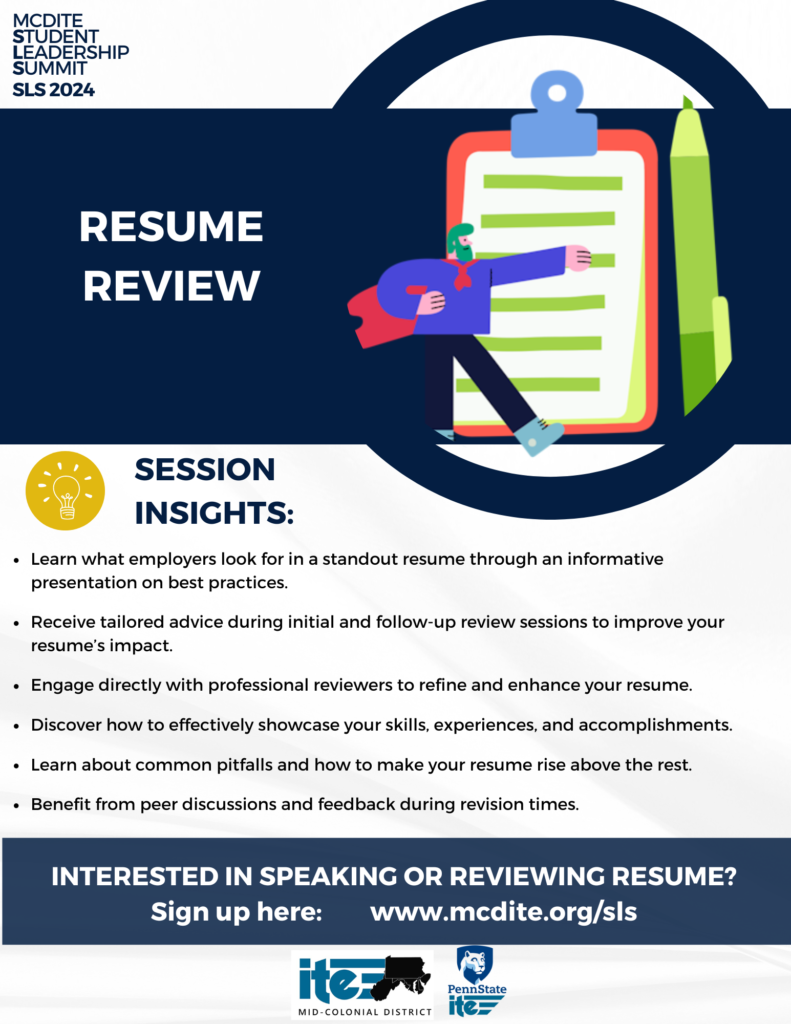
Contact Us
